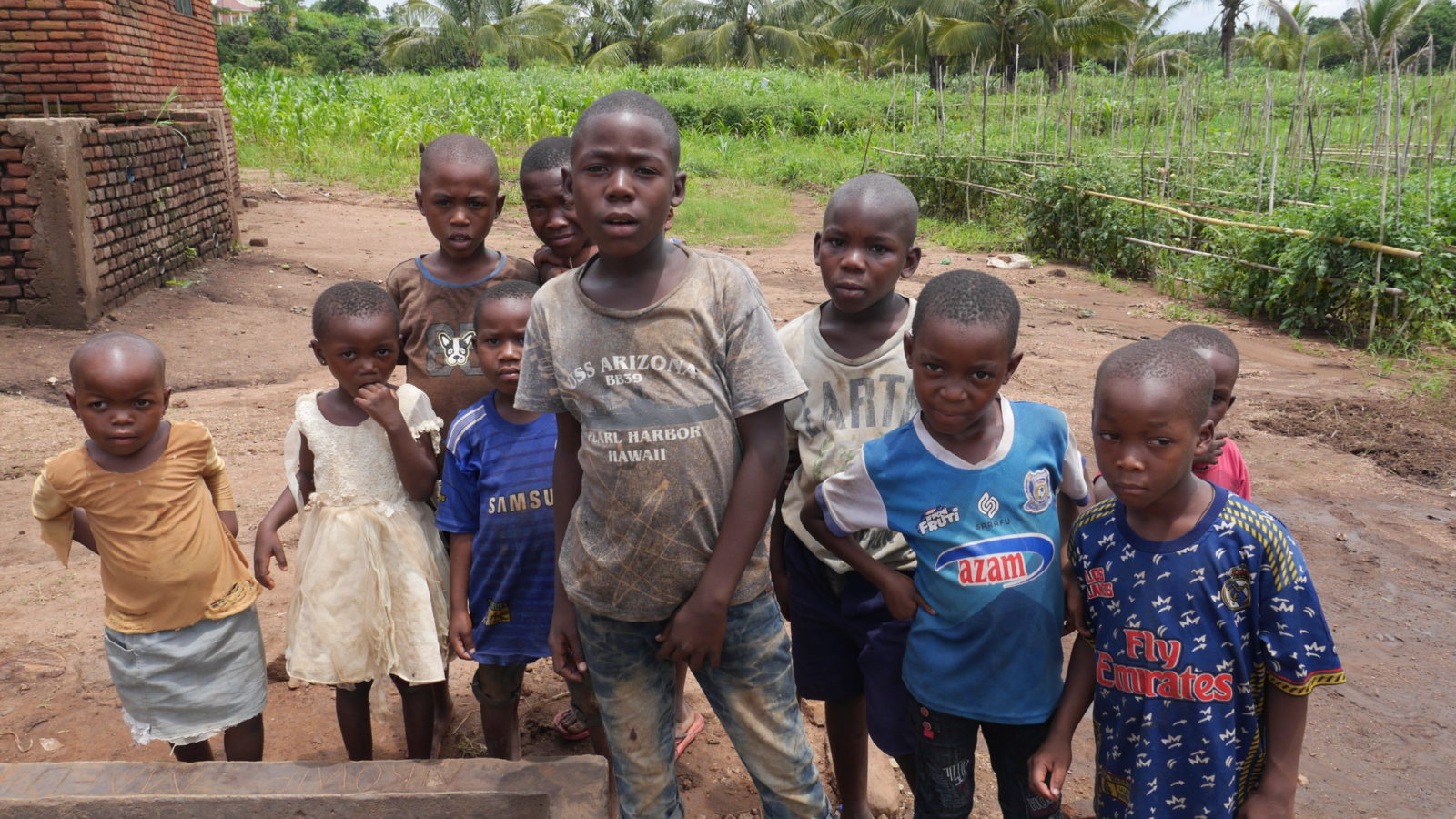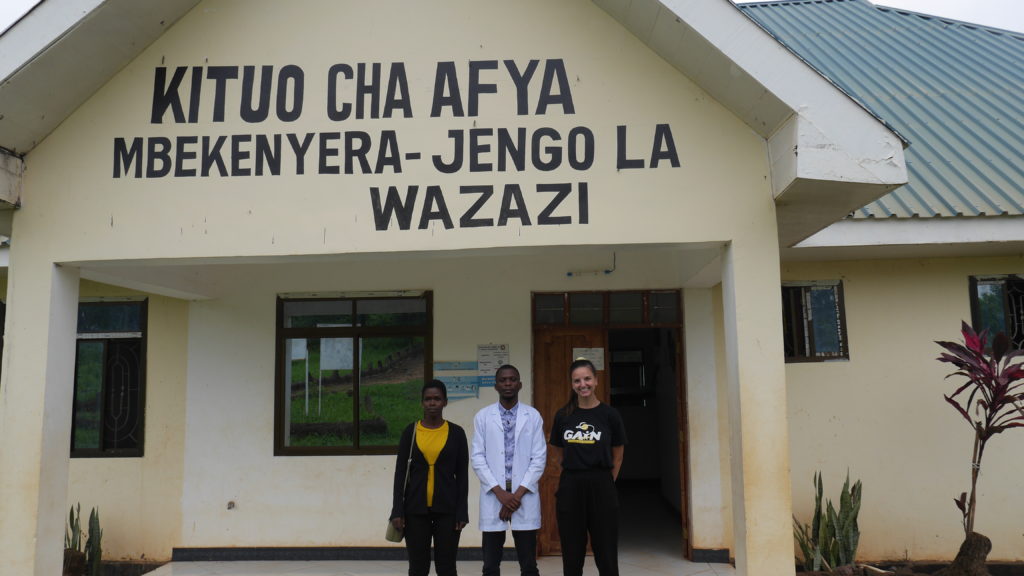
“With the coming of GAiN, our knowledge has increased abundantly. I now can confidently save the life of the mother and the baby at birth.” – Eusebius, head doctor of Mandawa Health Center.
Since 2006, GAiN has provided access to clean water for medical clinics in Benin, Tanzania and Togo in order to increase the overall safety and quality of care given to patients. This strategy is rooted in the knowledge that having access to clean water and the Living Water can transform every part of one’s life for the better. At GAiN, we care deeply about how clean water affects the social, spiritual and economic culture of a village, but also how it can bring protection and physical restoration to the vulnerable. Anchored in our passion to see the whole person restored, GAiN developed the Saving Lives at Birth program, where staff at the clinics are being trained with knowledge and techniques for how to properly care for newborns and mothers in a safe and timely manner.
Our team visited the Mbekenyera Health Center in Tanzania, where we met with the assistant doctor in charge. When we asked him about the impact of the training, he said that the hospital staff used to have no knowledge about how to save a baby’s life, but now six birth attendants have been trained in Saving Lives at Birth (SLB). He is so grateful that they haven’t had any bad cases since the training 12 months ago, which taught them about danger signs to look for so that babies can be referred to the hospital in a timely manner.
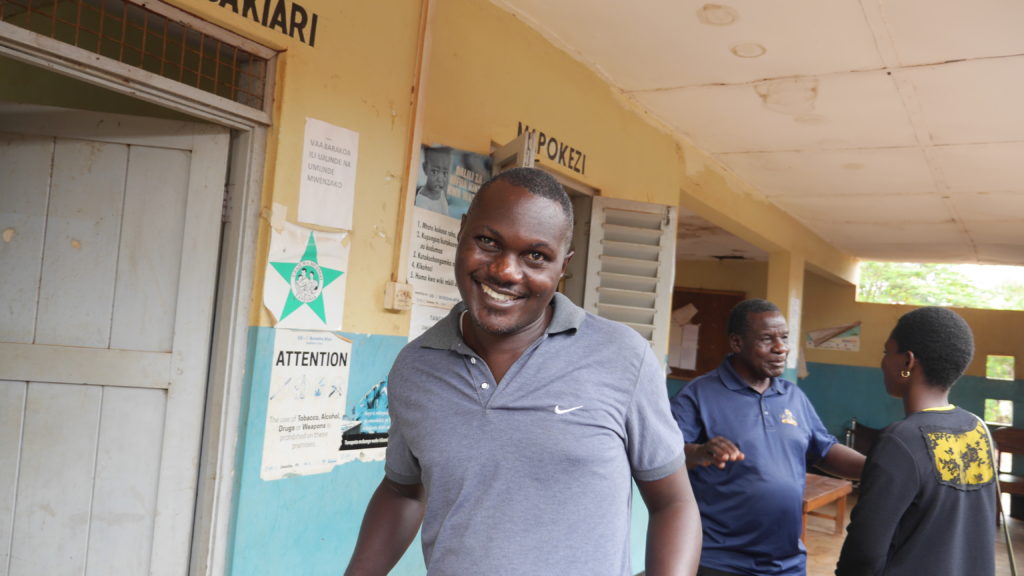
When we asked why they hadn’t had any knowledge prior to the SLB training, the assistant doctor said they didn’t have sufficient equipment to practice what they had learned in school, so their skills were forgotten. Now that they have proper training, equipment and resources, the hospital attendants are able to practice constantly and pass on what they have learned to other staff.
Later, we asked the doctor if he could share more about what the situation was like before the training. He simply answered, “Babies would die while waiting for the doctor.”
When birth attendants were unsure how to handle a situation, they would ask for help from the two doctors at the clinic which ended up wasting precious time. The training taught these birth attendants about the ‘golden minute,’ where resuscitation must occur in order to save the baby. This rule clarified that they cannot wait for the doctor’s assistance in these circumstances if the baby is to survive.
As we walked through the maternity ward, we heard a newborn baby crying. It was a wonderful sound to hear a healthy newborn! The birthing rooms used to be less than ideal, with old or broken down equipment, stiff beds and dirty floors. Since the training, they now have a resuscitation table with equipment and action plans on the wall.
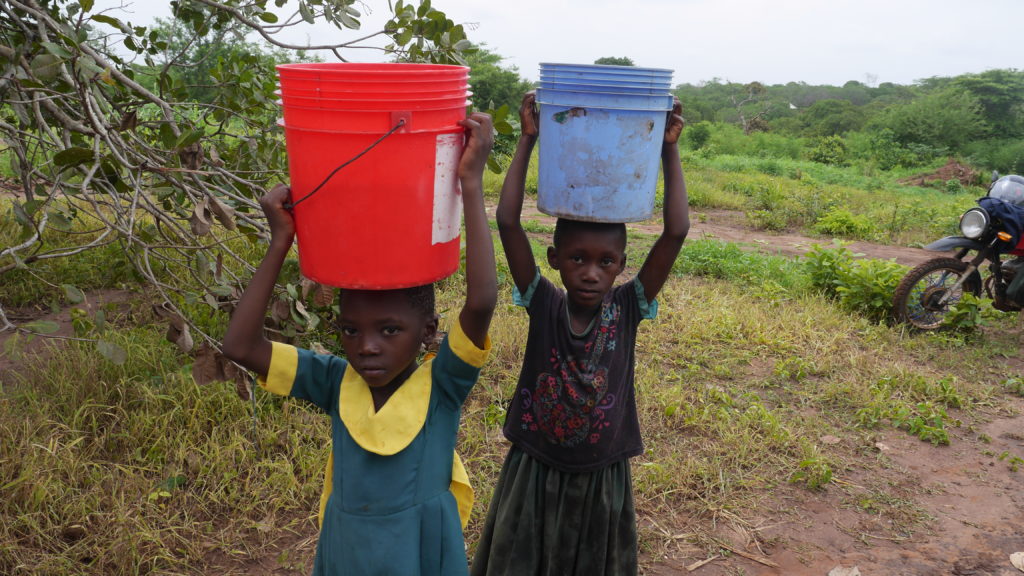
Our team had the opportunity to chat with a nurse named Levina at Mbekenyera Health Centre.
She said, “Since we got education in different ways of helping babies breathe through GAiN, we have many benefits. We now have a lot of education on how to help babies breathe, how to give care to mothers, we are so happy because we learned a lot and understand the benefits for us.”
When asked how she felt after receiving this GAiN training, she shared, “I feel so happy because we understand how to help that baby when it has a problem. We also need to continue learning with GAiN’s help and have more opportunities.”
Levina shared that during one of her shifts, she admitted a pregnant woman into the hospital who was close to giving birth. Upon the examination, she noticed that the heartbeat of the baby was decreasing and it was having fetal distress. She remembered her training and prepared the necessary equipment in case the baby required breathing assistance. Once the mother delivered, Levina identified what treatment was needed and swiftly cleared the baby’s airways. Within five minutes, the baby was crying! Levina was so happy that the education she received was helpful in saving a life
Levina shared that prior to her training, “it was a bad feeling [to help with a delivery] because [we] are always expecting the baby will be healthy at birth so when that doesn’t happen it’s sad because it’s a human life.”
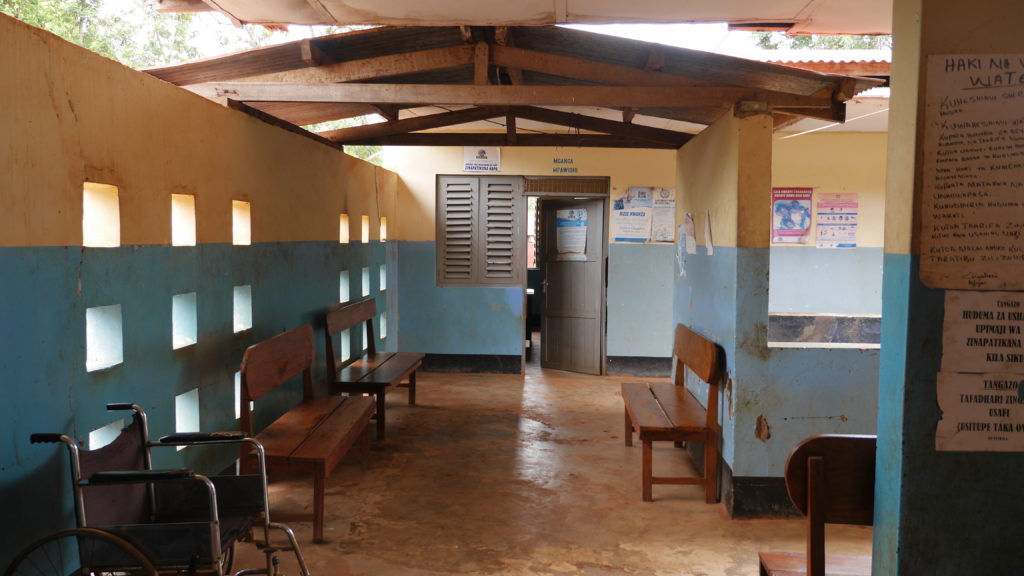
At Mandawa Health Center, a clinical attendant and anesthetist named Tumaini said the training has helped their whole team become better at assisting mothers during delivery. Several other attendants mentioned that they feel much more comfortable using proper methods to save lives at birth and believe they will be able to help many more babies in the future. One nurse named Paul shared about a mother who experienced postpartum hemorrhaging after birth, but he was able to manage the bleeding using the action steps that GAiN taught him.
Not only has GAiN’s Saving Lives at Birth training vastly improved the function of the clinics, but the provision of access to clean water has also ensured that these centres run smoothly and effectively. The staff used to draw from the town’s water system, keeping a limited supply in tanks for the rainy season. However, during each dry season they would run out of water. When this happened, they sent people on motorbikes or in an ambulance to buy water but had to use it sparingly for surgeries and birth. All other patients had to bring their own bucket of water.
After seeing how a lack of clean water was inhibiting the medical staff’s ability to care for patients, GAiN stepped in and created a system for easy, reliable access. The drilling locations have now been connected to the medical centres, providing safe water and creating a more hygienic and stable environment for all.
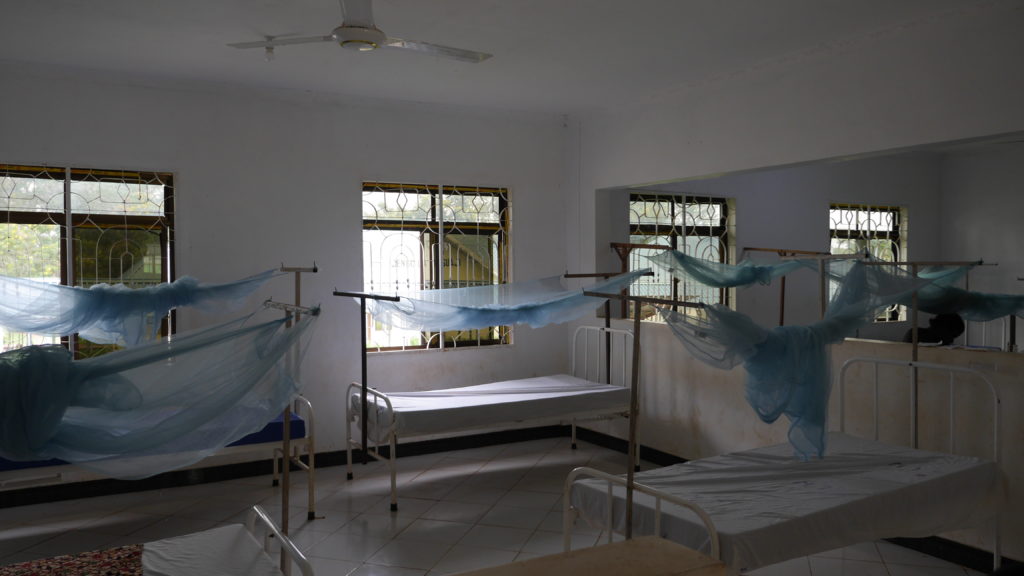
“With GAiN drilling the borehole we see a bright future ahead because sometimes we would have to tell families/loved ones to go and collect water from remote places for their delivery due to the lack of water. There wasn’t enough staff here to collect water. Now with GAiN the problem [is] solved. We are sure it will be a sustainable one for a long time,” shared Eusebius.
Eusebius shared how deeply appreciative the clinics are for GAiN’s support, as it has dramatically increased the staff’s ability to protect mothers and children at birth and has given them renewed confidence in their skills. The delivery packs that GAiN provided have also been a profound blessing to pregnant mothers who are better set up to have safe and smooth births.
By equipping medical clinics with access to clean water, Saving Lives at Birth training and delivery packs, GAiN is providing higher quality health care to mothers and babies in Tanzania, Benin and Togo. The impact that GAiN’s support is having on clinics is encouraging–medical staff are growing in confidence and, as a result, more lives are being saved. We are thankful that GAiN has the opportunity to create an environment of safety, stability and hope within the health care clinics and are excited to continue sharing their stories of success and growth.
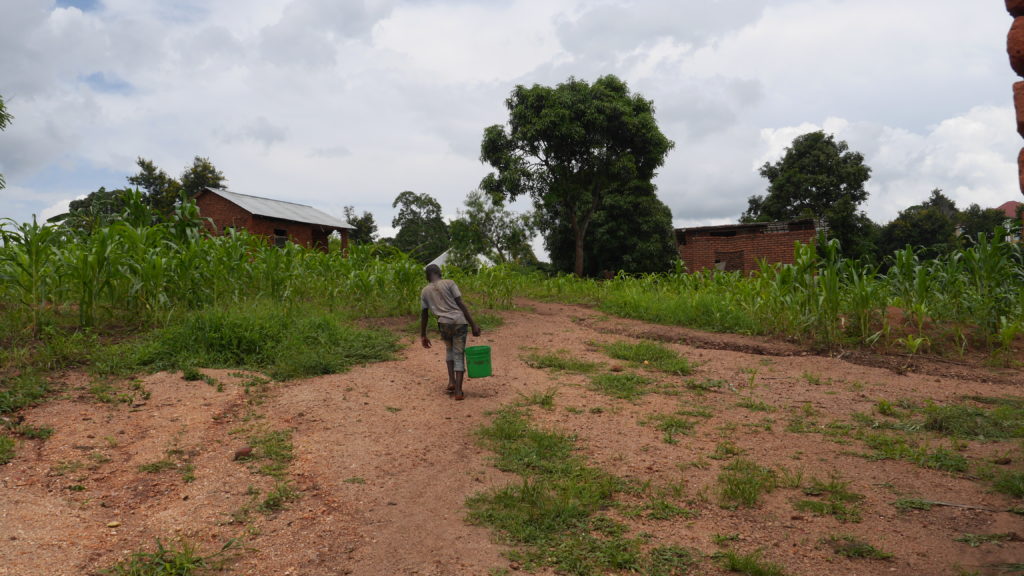
Before clean water arrived at the village of Nkowe-Mafuriko in Tanzania, people would wake up each morning to a life where time, energy and resources were stretched dangerously thin.
Instead of spending precious hours of their day farming the fields for food, villagers would have to wake up while it was still dark to begin their long search for water. Instead of rising to meet each day feeling healthy and strong, the burden of sickness caused by contaminated water would plague them with discomfort.
A 15-year-old girl named Esha recalled the difficulty of life before having access to safe drinking water: “The river we used to collect water from caused stomach aches and diarrhea. I would have to spend time going to the river and if it was the dry season, I would have to dig to find water,” she said.
However, once Global Aid Network (GAiN) provided a deep-capped water well, the hardship of waking up to life in Nkowe-Mafuriko started to disappear. People’s day-to-day rhythms became more sustainable, with less time being consumed by the search for water. Slowly but surely, their physical, mental and spiritual health was restored and rejuvenated.
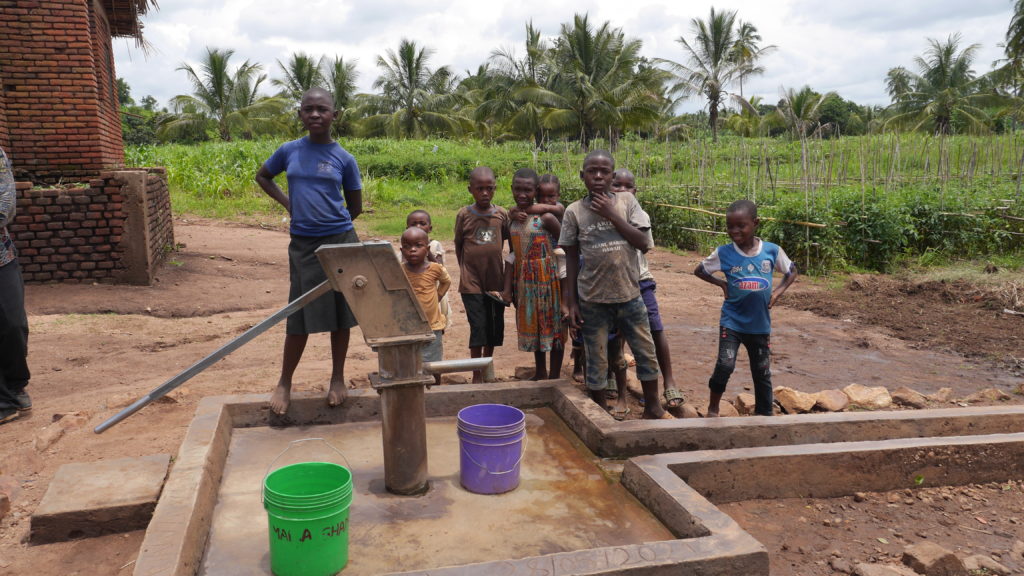
Esha shared how much she loves that the water from the well helps her to keep her home clean, and that she enjoys having clean water to wash her school uniform. Since she is able to attend school, our GAiN team asked Esha what occupation she would like someday and after some thought she said, “I’d like to be a water committee secretary.”
Her answer showed us that she knows the importance of looking after the well and believes it to be a job that women can do. Thanks to GAiN’s water committee training, villagers in Nkowe-Mafuriko are able to be equipped with the tools and knowledge they need to care for the well.
Through a partnership with the closest nearby church (mother church), God’s unconditional love was shared with villagers. Twenty-five members of the village made decisions to follow Jesus, and the three individuals who chose to learn the basics of their faith. However, because this mother church was a 10km walk away from the village, attendance was low. Thanks to a new church plant in the heart of their village, believers can now gather as a Christian community year-round and their numbers are increasing day by day.
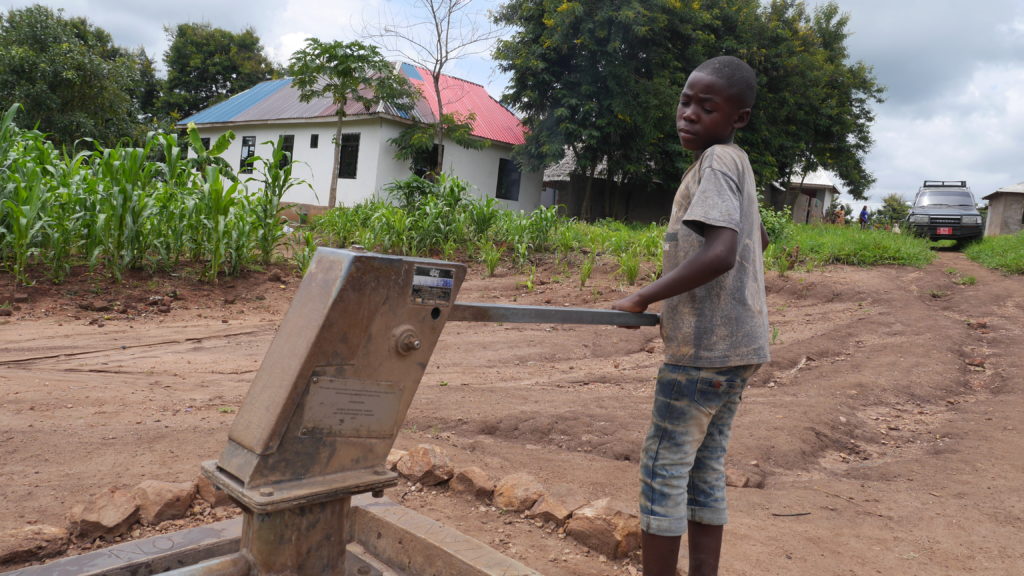
GAiN also built a church structure for this community of believers, which has now grown to 40 adults and many children. Previously, the church met under a tent, which wasn’t comfortable or suitable when it rained.
Through the powerful and transformative gift of having access to clean water, the village of Nkowe-Mafuriko can welcome each new day with joy and hope. Their days are no longer hampered by the time-consuming task of collecting water or the discomfort of water-borne illnesses. They are no longer withheld from attending school or hearing about God’s love through a local church. Each morning, villagers can look forward to a more empowered way of life.
At GAiN, we desire that everyone experience life in its fullness, free from the burden of poverty. Our mission is to reveal hope by sharing God’s unconditional love, and restore life by demonstrating the gospel through compassionate action to those who are living in poverty, injustice and crisis around the world.
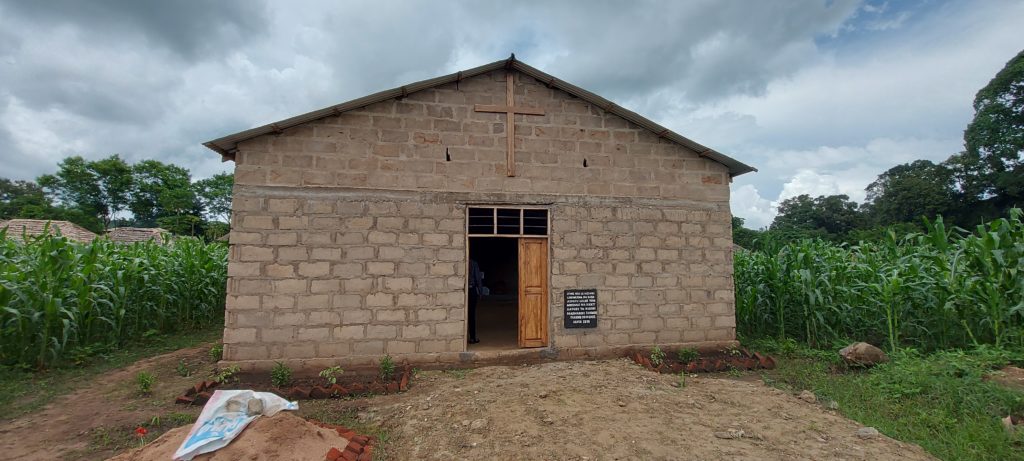
The joint impact of the water well and the sharing of the gospel has infused hope into the life of the villagers. Our dream is to see more individuals experience the body, soul and spirit transformation that comes when safe water and the message of God’s love are introduced into their communities.
Will you join us to help make this dream a reality?
Our goal is to raise $247,250 to provide approximately 23,000 villagers (23 communities) with clean water and the Living Water by June 30th.
A simple ‘yes’ creates a ripple-effect of change in the health, relationships, economy and spiritual vitality of a village. Your gift can serve as the catalyst for authentic and lasting impact on a community for generations to come.
Experiencing renewed joy through water –
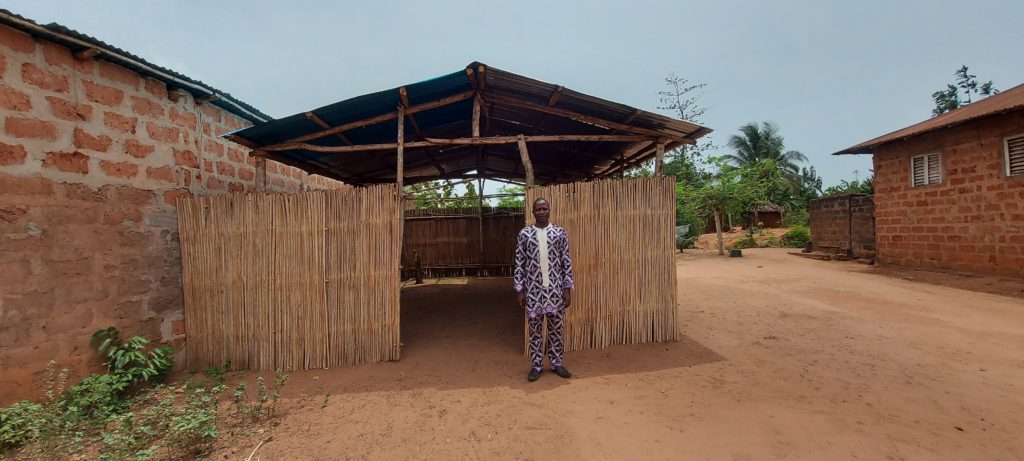
For over fifteen years, Global Aid Network (GAiN) has committed to providing deep-capped water wells to rural villages in such countries as Benin, Tanzania and Togo. Through the Water for Life Initiative, which includes the WASH (Water, Sanitation and Hygiene) program, GAiN not only resolves to give communities access to clean water, but also develop a culture of sustainability and wellness and an understanding of the love of Jesus.
Our team encountered Pastor Fidele and a few others in the village of Adjaho Vekpa. When we asked him about the community’s local water source, he informed us that the closest reliable source of water was six kilometers away. Although there were hand dug wells nearby, they did not always produce the amount of water needed by the village. Thus, women and children in the community had to travel six km to bring home water that was collected from swamps and standing water. The water was contaminated, as it was shared with livestock and was also used for bathing and doing laundry. Water-borne illnesses would often plague people as a result of being forced to drink this polluted water.
Previously, there was strong resistance to preaching and the gospel because the community was steeped in the practices of Voodoo. Yet, even before our team arrived, God was working in the hearts and minds of the villagers. Once the well was provided, people’s hearts slowly became open to hearing the message of Jesus Christ.
However, once a well was installed, an abundance of joy was brought to the community. The availability of clean water provided them with a means of living healthier lives that were no longer burdened by lengthy travel or disease. Partnering with the local church also allowed the hope of Jesus to be shared.
The pastor related to us the feelings of many villagers: “The God that provides the water is the God we want to know about.”
Our team worked with the Assemblies of God Church in Toffo to train six members of that church on how to share their faith, and they went door-to-door in the community, proclaiming the good news of Christ. Fourteen people made a decision to follow Jesus in one day, and a new church plant of 15 people now exists in this village, led by Pastor Fidele.
“Our prayer is that this village is gained for Christ,” shared Pastor Fidele. “The work that GAiN has done in this village has already opened doors for us to come here with the Good News of Christ and that has opened the door for us to preach to people and they accept Christ.”
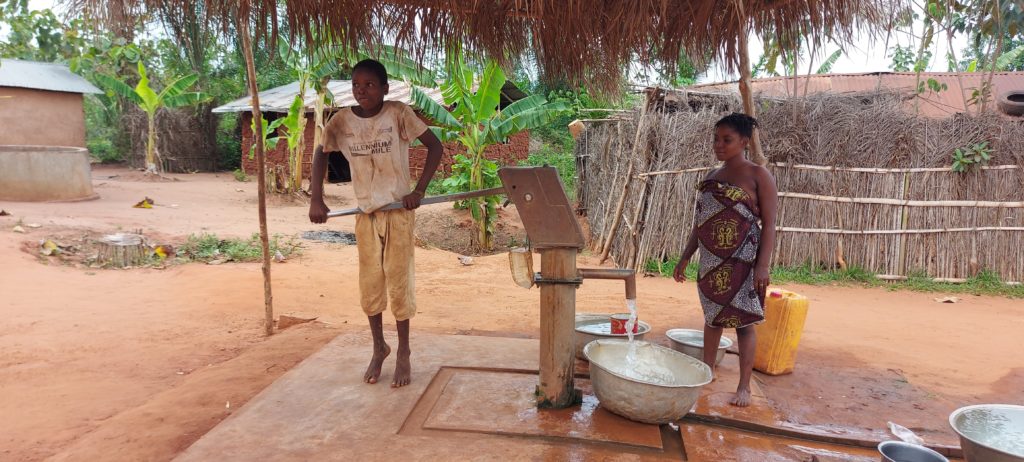
This is just one story of how deeply grateful we are for how God continues to use GAiN’s WFLI to transform the everyday rhythm of villages.
We also witnessed the faithfulness of the Lord through the commissioning of a second rotary rig in Benin, which is already assisting in providing even more wells to villages in the country.
Additionally, we saw God’s continued faithfulness during the Director of GAiN’s WFLI, Steve Thompson’s, trip to Tanzania this summer. Steve met with the Tanzanian government, who are key partners in the provision of water to rural communities, and together with GAiN, they started negotiations for the next MOU (Memorandum of Understanding).
During that same trip, Steve visited the three villages that are part of the Maasailand project. One village leader shared how his community had lost hope in finding clean water, as thousands of dollars had been spent searching for water in partnership with other organizations, and all attempts had failed. When the villager heard that GAiN Tanzania had found water, he dropped to his knees and cried, shaking Steve’s hand and praising God for the water that had been found. We are moved by the Lord’s work in Tanzania, especially how he has strengthened the staff working there, enabled us to form a solid relationship with the government, and provided the tangible gift of water to rural villages.
AFA (Assa Fulfulde Anji) Project
In March 2021, GAiN partnered with a foundation to bring the gospel to three unreached people groups, including the Fulfulde and Anji peoples in Northern Benin, and the Assa people in Northern Tanzania. The goal is to plant 85 churches among these three people groups, and see 4,600 unreached individuals come to know Jesus Christ as their Saviour.
Over the past four months, we have witnessed the transformative power and work of God through the AFA Project. During our team’s trip to visit ten villages in Northern Benin that belong to the Fulfulde people, we saw how the provision of clean water and church plants had changed the atmosphere and livelihood of the community.
The Fulfulde people are cattle rearers, and were a historically nomadic group. They have been hated by other people groups in the past because their animals would eat other people’s crops. As a result, the Fulfulde people became extremely isolated and were known for being distrustful of others. However, our team was told that because of both the deep-capped water well and church plants, the Fulfulde are much more welcoming to outsiders. We observed this change through the warm welcome we received from the villages, and how in one community, the children came to play with us and touch our skin. Previously, this kind of interaction would never have happened.
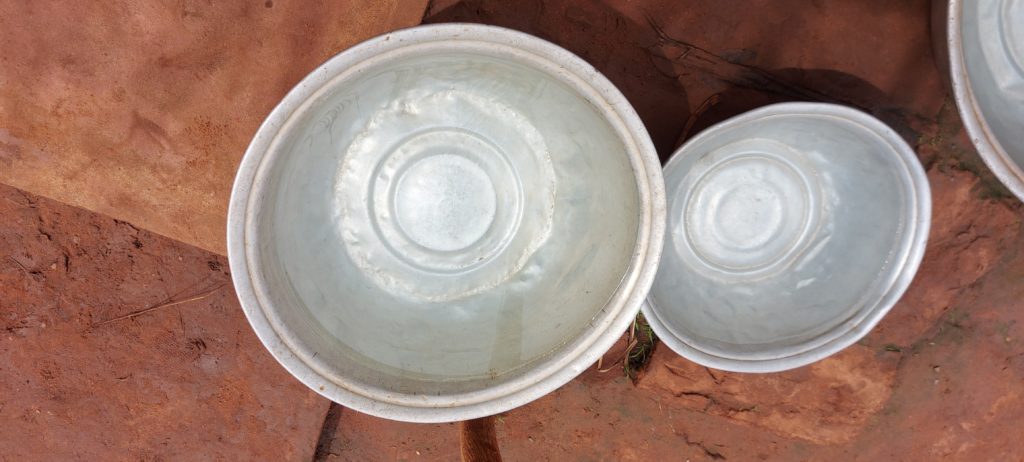
During a conversation with Bertin, the JESUS Film director of Northern Benin, he noted that one of the reasons that the AFA project is so successful is because it targets specific people groups.
“These groups feel valued and chosen by GAiN. Therefore, they embrace the project enthusiastically,” he said.
In addition to providing communities with a well and hygiene and sanitation training, GAiN meets with local pastors to strategize about planting churches, teach discipleship skills, show the JESUS film and mobilize door-to-door evangelism. Several new tools have also been introduced, such as showing the Walking with Jesus (WWJ) Film series to new believers.
A member of our team had the chance to speak with several pastors who have used WWJ, and all agreed that it is very well received and incredibly useful for discipleship. Bertin noted that he “sees lifestyle changes in people and families after watching the WWJ film.” The film is shown with African actors and context as well as in the people’s own language, making it extremely effective in teaching new Christians more about Jesus.
The Discipleship Training Sessions are another tool that is being used as part of the AFA project. Bertin noted that this is like a small school for pastors, and is well received by those that attend. The pastors return to their churches feeling better equipped and ready to bring their new knowledge to their church.
One pastor named Daniel Gmanou said: “I thank God for this wonderful training. Each of the topics covered are important to me and also important to the faithful of the church. I have good memories of this because spiritual growth requires good training.”
Through this project, 34 churches have been planted in unreached people groups in Benin and Tanzania, and 26,000 people have heard the gospel. GAiN is thankful for all that God is doing through WFLI and AFA, and has faith that many more unreached communities will experience the life of hope and abundance that He offers.
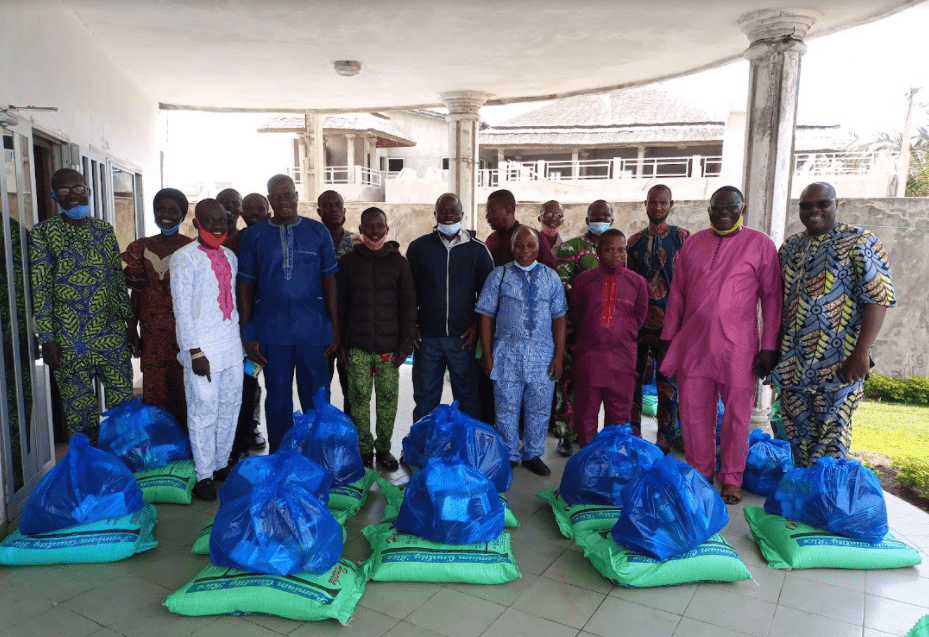
When we started the Pastor Support Program (PSP) last year, we didn’t know that pastors would still be feeling the effects of the COVID-19 pandemic a year later. For pastors like Hountondji Pulcherie in Tori Cada Lokossa 1, Benin, the aid received through the program helped her considerably.
“I thank the donors for everything they are doing because I benefited,” the Foursquare pastor said. “I shared it with some members who had, in the meantime, stopped coming to the church.”
As part of our Water for Life Initiative, the PSP was started in Spring 2020 as a way to support pastors who were having a tough time providing for their families during the pandemic. The pastors we’ve worked with have all previously engaged with GAiN over the years that we’ve been working in Benin and Togo. Government restrictions to help limit the spread of COVID meant that churches could not gather as they used to. Many of the congregants even lost their jobs due to the crisis. Even when some churches were able to partially reopen, some church members simply stopped attending. This has affected the church in different ways, as it hindered doing ministry and resulted in reduced offerings. The negative impact was strongly felt by pastors, as some churches had to cut their pastor’s salaries in half.
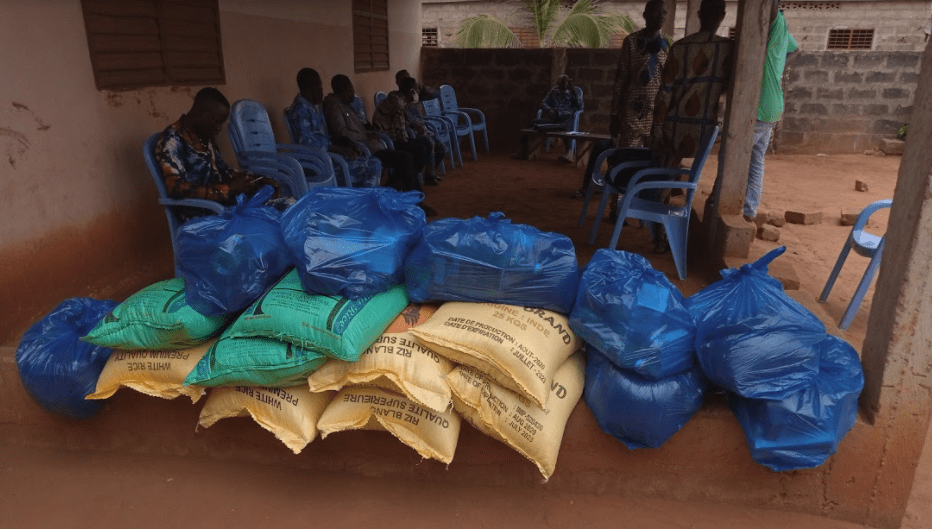
In July 2021, we started phase 2 of the program. The PSP in Benin completed the first of eight distributions in July 2021. Twenty-six pastors each received a bag of rice, beans, oil, soap, and a small gift for their children. Pastors also attended a three-hour workshop at the GAiN Benin office. They received Bridge to Life booklets to assist them in their evangelism and discipleship work.
In Togo, the first distribution happened in early August. The team planned 15 different distribution sites spread throughout the country so that pastors in different areas didn’t have to travel too far to get their packages.
These distributions have been helpful during this season, especially for those who live in areas where Benin and Togo have experienced an extended drought. The drought has led to high food prices and increased food scarcity.
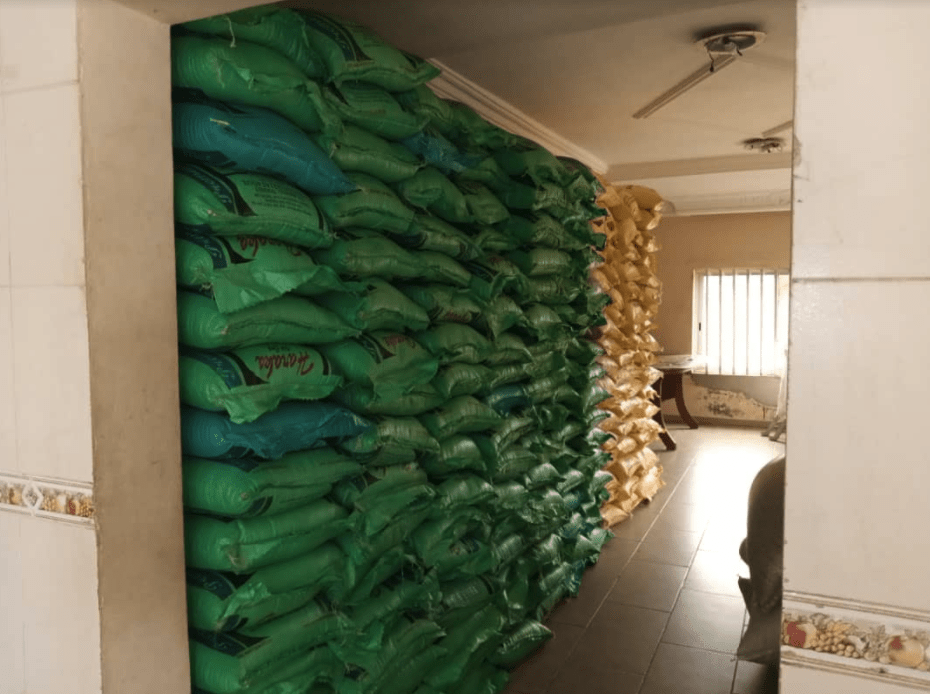
“I thank GAiN for these gifts that [were] sent [to] me,” expressed Jonas Fangla from the Pentecostal Church of Afekpa in Togo. “I really appreciate it. For this love demonstration, my family and I are very grateful for it. May God bless you a lot and the donors also.”
Komlan Gaglo from Baptist Church of Adeta Akorome in Togo said, “I can’t find the right word[s] to thank and bless God for the life of all staff who remembered me and my family during this difficult time, due to the COVID-19. I pray that God bless[es] you more than what you expected.”
The remainder of the PSP was officially wrapped on September 5. To date, a total of 200 pastors in Togo and 475 pastors in Benin have received support. Our prayer is that this project will continue to bear fruit beyond just providing for pastors’ basic needs.
With pastors receiving support, it’s our hope that they were able to reach those believers who stopped attending church due to the impact of the pandemic.
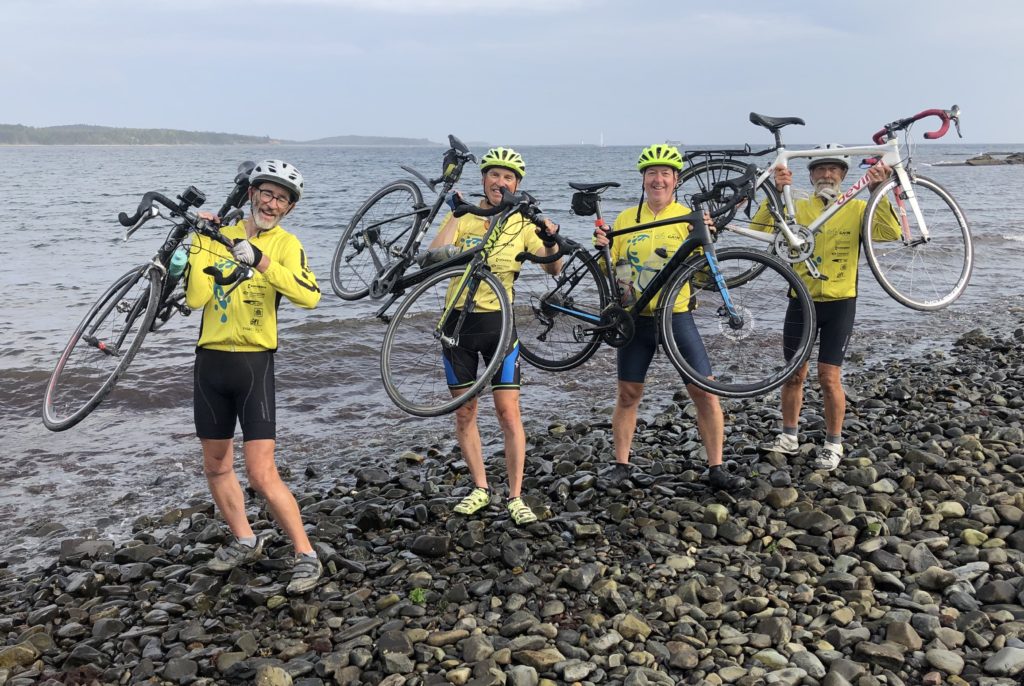
After two months of cycling through Canada’s diverse and picturesque landscapes – including the Rocky Mountains, flat prairies, hills in eastern Canada – the Cycling 4 Water team reached Atlantic Canada just in time for fall, completing their 65-day ride in Halifax.
The team, made up of a group of self-proclaimed young-at-heart old guys (Mike Woodard, Rob Montgomery, Timo Itkonen, Gabe McReynolds) and their “roadie” (Lyndon Dojohn), dedicated their summer to raising awareness and funds to provide access to clean water for rural villages in Africa. They set out with a goal to provide approximately 65 villages with clean water through GAiN’s Water for Life Initiative.
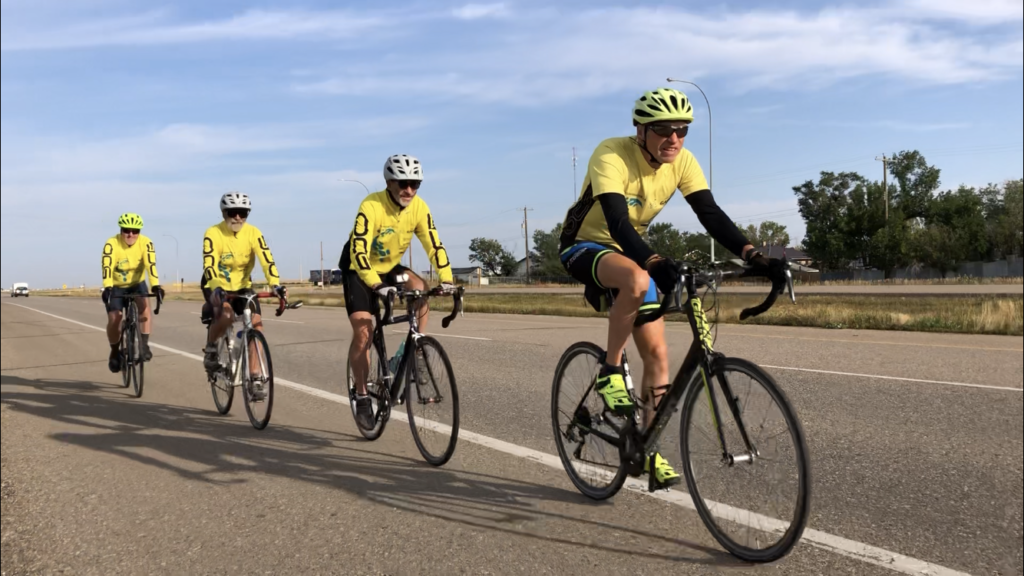
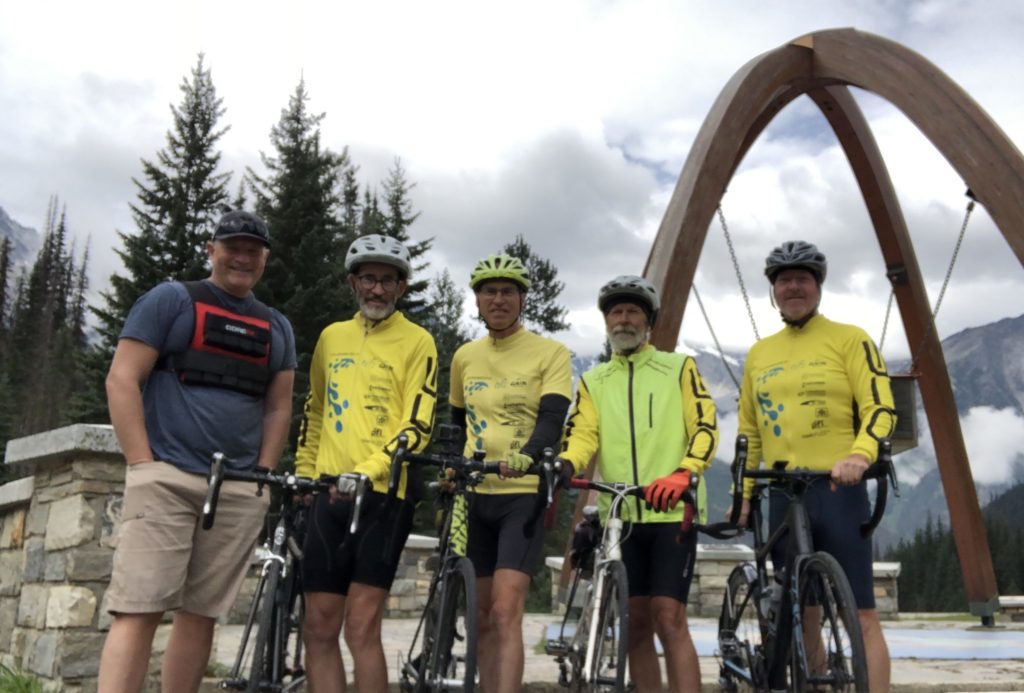
The statistic that every 90 seconds a child dies due to water-related diseases has been one that has kept the team going. “That’s a statistic that gripped my heart, all of us being fathers and grandfathers,” Mike told the Standard-Freeholder in Cornwall, Ontario. “There’s nothing more basic than water – if you don’t have water you die. A well transforms a village. It changes the whole dynamic and the health. It allows kids to go to school because they aren’t sick.”
This has been the biggest motivator for the cyclists, who rode through Canada’s varied weather, including forest fire smoke, strong headwinds, hail, and heavy rain.
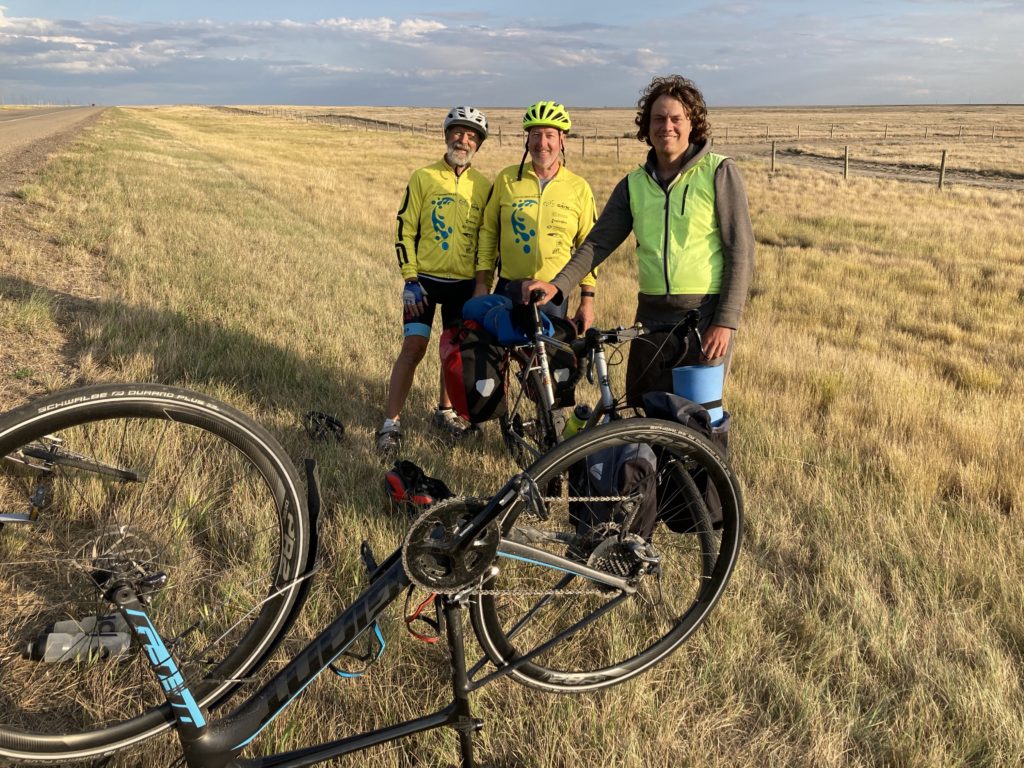
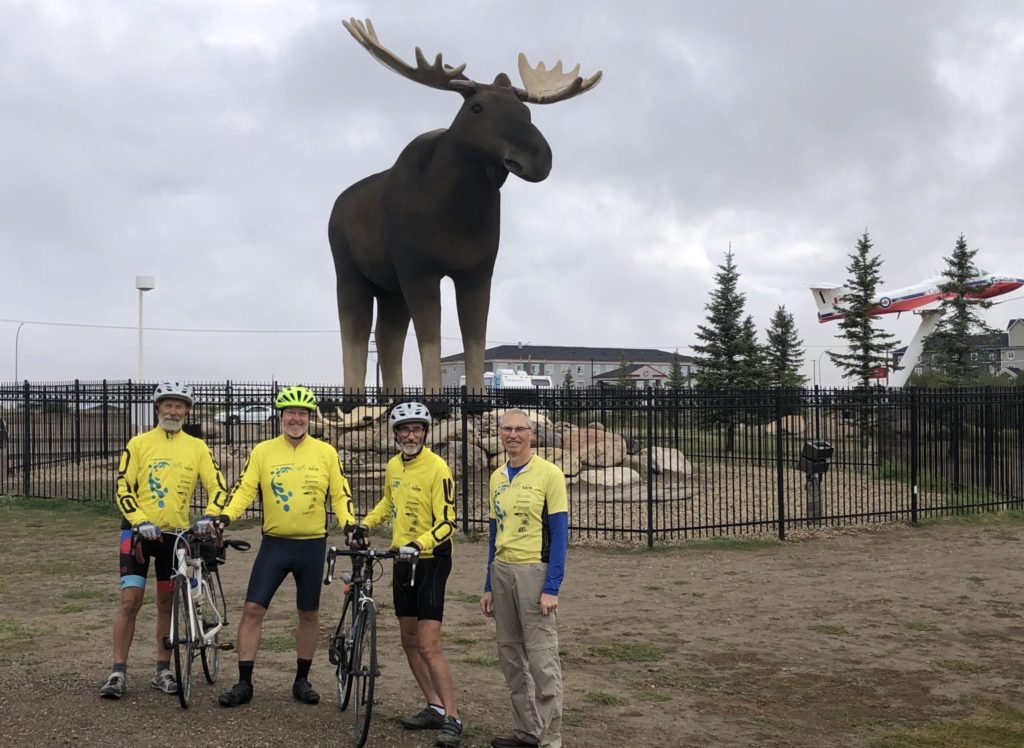
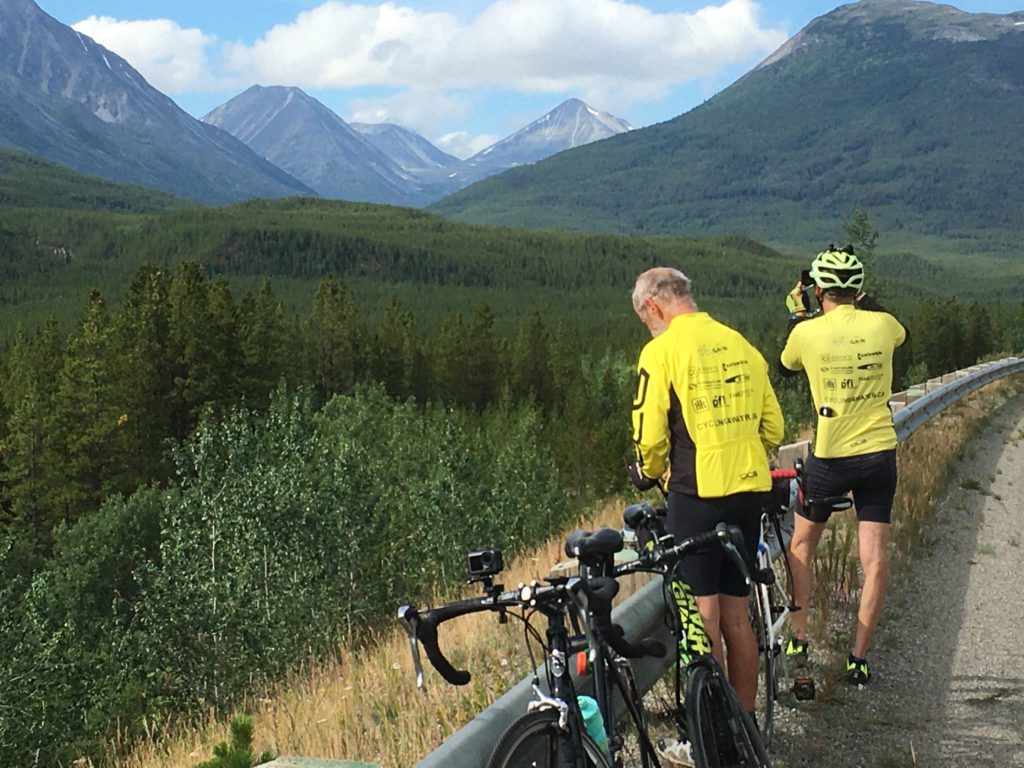
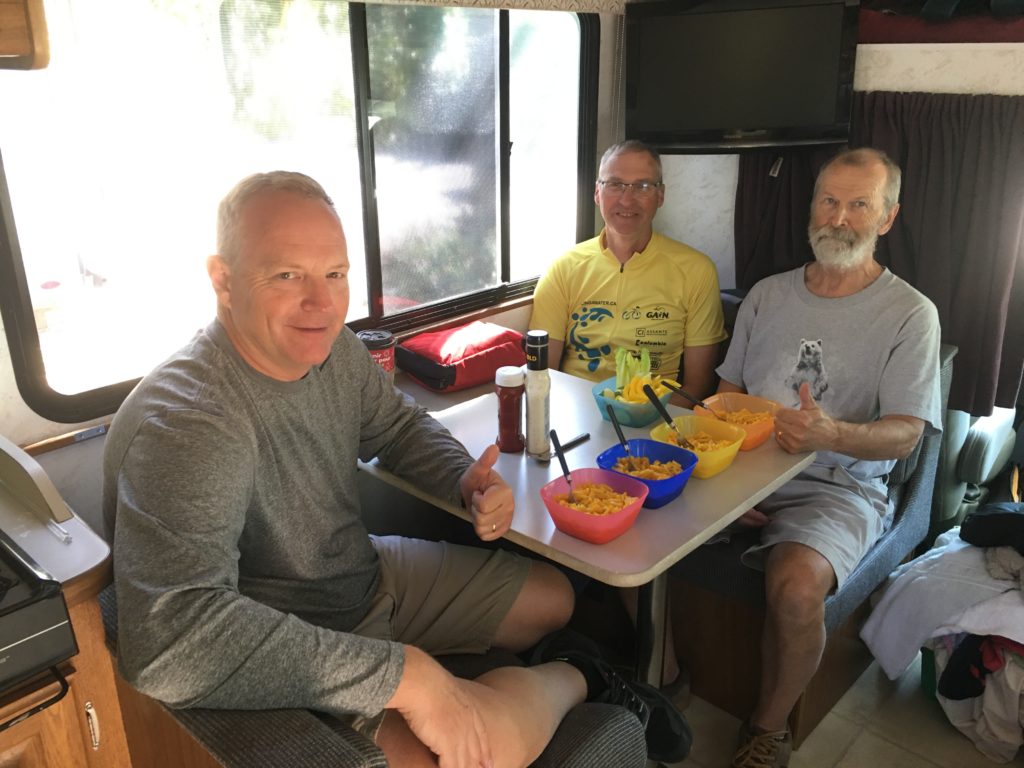
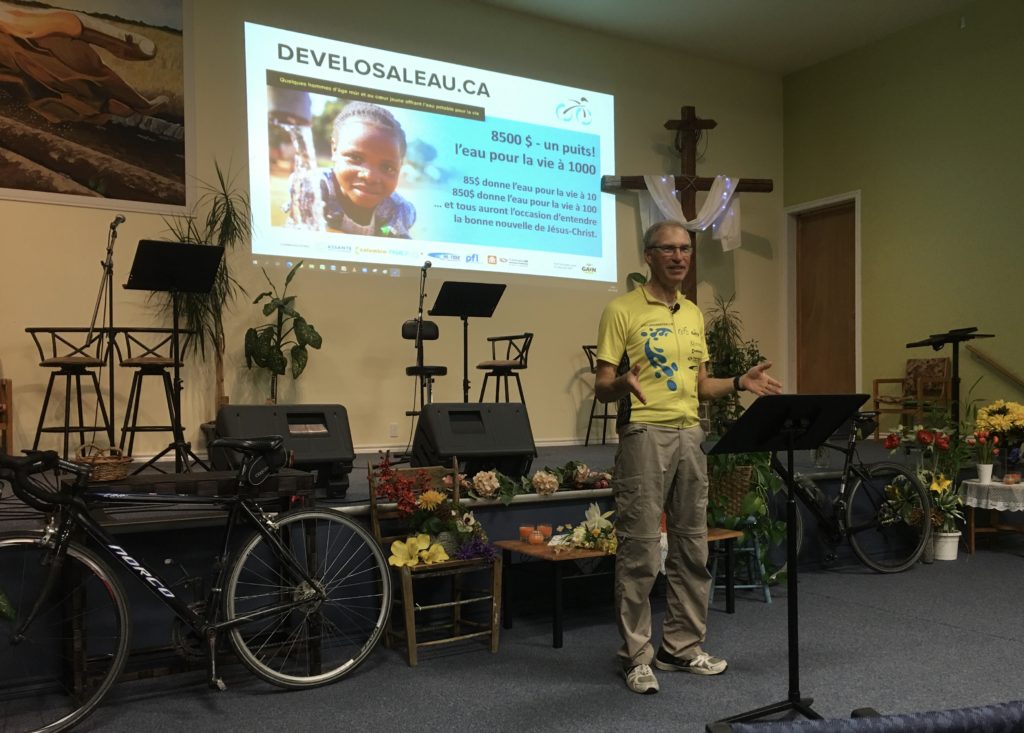

“The highlights of the trip have been the struggles that God has brought us through,” Lyndon, who drove the RV and is also the church partnership director for GAiN, shared. “Across the prairies and Northern Ontario, the weather wasn’t that great. [There were] a lot of headwinds for the cyclists. Major days of rain, all day, when they’re out on the road.”
The team also came across some literal roadblocks, with construction and non-access roads. This meant that they had to re-route, adding more kilometres than planned, on paths that weren’t as great.
These weren’t the only challenges. The team faced some setbacks as individuals. Near the beginning of the trip, Gabe got news that his mother-in-law had passed away and had to fly out of Whitehorse to be with family in Ottawa. The team rode on as a trio, but about a week later, Gabe was able to rejoin them in Prince Rupert.
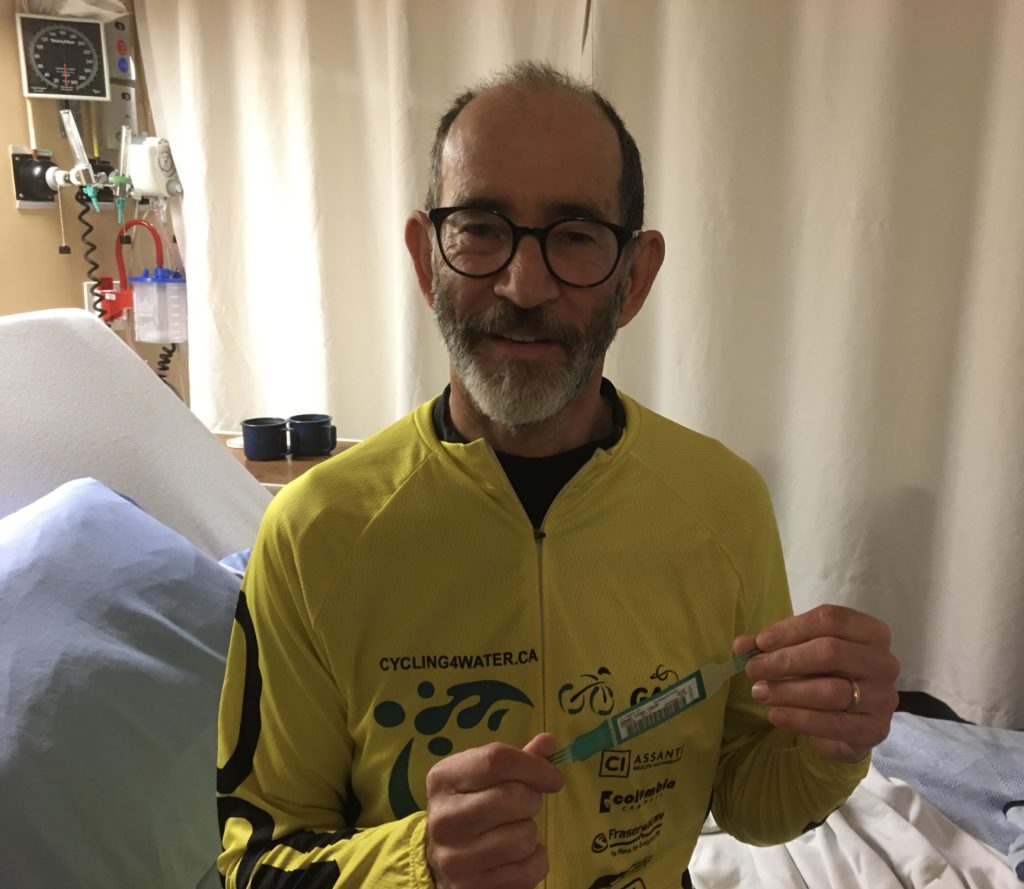
Not too long after, on day 11, Mike fell while on the road, fracturing his pelvis. After a visit to the hospital in Stewart, BC, Mike took a day off and the team made adjustments to the schedule due to the detour. Unfortunately, a few days later, in Terrace, BC, Mike had to be readmitted to the hospital due to some internal bleeding from his fall. Thankfully, he was able to rejoin the team just a couple of days later, catching a flight to Prince George.
That wasn’t the only injury on the road. Just two days after, Rob started experiencing a sore ankle, requiring him to take a few days off before getting back on the road.
This year’s 10,000-kilometre event was initially scheduled for June 2020, but was postponed due to the COVID-19 pandemic. While the Sea 2 Sea 2 Sea ride was finally able to get moving this year, it didn’t come without some challenges.
Travel restrictions in the North West Territories back in July meant that the plan of starting the ride in Tuktoyuktuk could not happen. Instead, the team started the ride from Dawson City, BC, still as enthusiastic as ever.
Despite all of the obstacles, the team was determined and committed to the cause. As a result of their perseverance, as of today, they have raised enough to provide access to clean water to approximately 65,000 people!
Overall, the team is thankful that they were able to do this ride across Canada safely during the pandemic, while also meeting with generous strangers and friends, old and new. Along the way, they had the pleasure of visiting churches in different provinces to share about their ride and their reason for doing it. They were blown away by the unexpected generosity of the people they met.
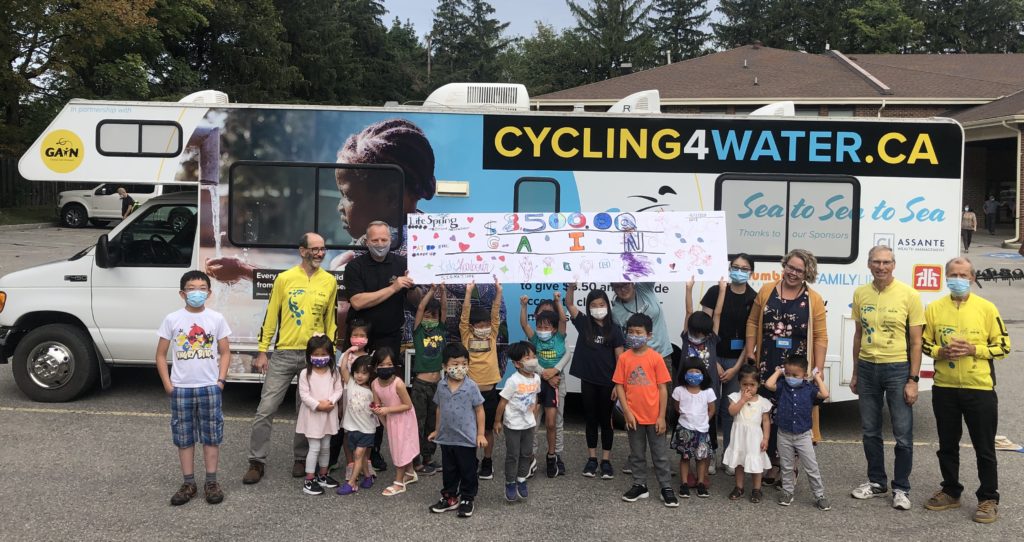
One of many memorable stops was at The Life-Spring Church in Ontario. The church pledged the amount of a well and had the children make a symbolic cheque to present to the team.
“Clearly, the highlights were in the churches on Sundays where people showed so much interest,” Lyndon shared. “The surprises were when some guys would just come up and cut a cheque for a complete water well. I don’t know how many people come to church thinking they’re going to do that. I don’t want to give the impression that it’s just those people who [matter]. Anybody who gives is a joy. Sometimes, [even if] it’s a small amount, you can tell that they’re giving it because they feel led to give.”
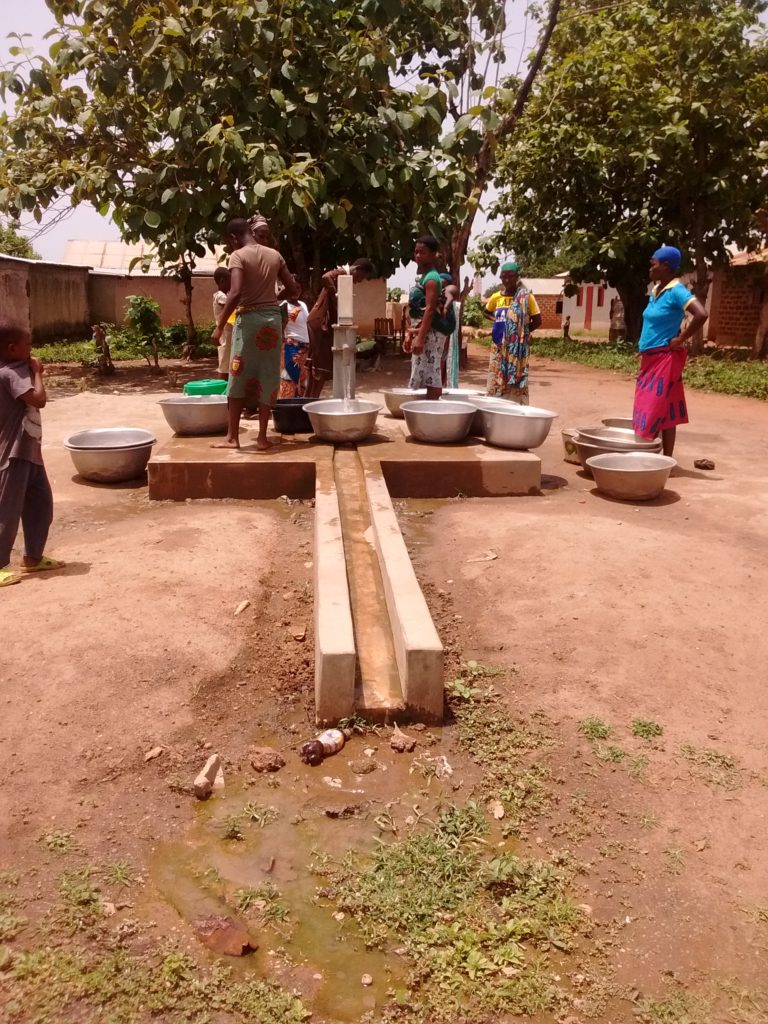
Adjeomi is a bustling farming village in Benin, West Africa. The women there take the cassava root vegetables that they harvest and produce a type of food called Gari. They take that to the local market to sell and trade. There are also craftsmen and craftswomen, welders, hairdressers, and dressmakers in the village. The entrepreneurial spirit of this community made them eager to install a water well back in 2017.
GAiN provided a well in October of that year, and also worked through the local church to provide hygiene and sanitation training and other community development initiatives.
On returning to the water point almost four years later, the people still remember the principles of hygiene and sanitation taught by the church and are practising healthy behaviours.
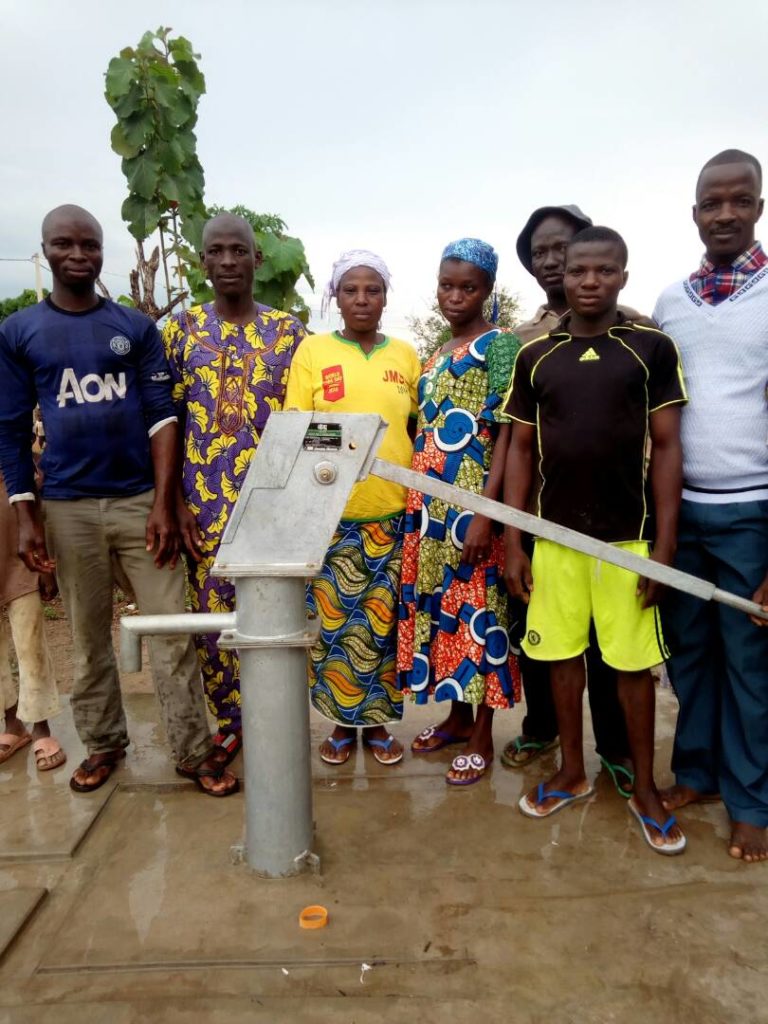
Pastor Seraphin told us that the well has made the church known in the community.
The next step is to build a church structure closer to the village. The community in Adjeomi has been saving money to purchase a piece of land worth 240,000 CFA (about $540 CAD) in Albarika Etuba village. The goal is to build a church there so that villagers from Adjeomi and Albarika-Etuba could meet there for services.
Beyond the time that GAiN spends in a community, it is the local church that remains, acts as a center of ongoing development and creates impact over lifetimes.
Today, the church in Adjeomi has worked to bring peace and life to their community, and have used their effective management skills and entrepreneurial mindset to purchase land to build a church themselves. They are taking great initiative to grow and develop in order to see their community flourish.
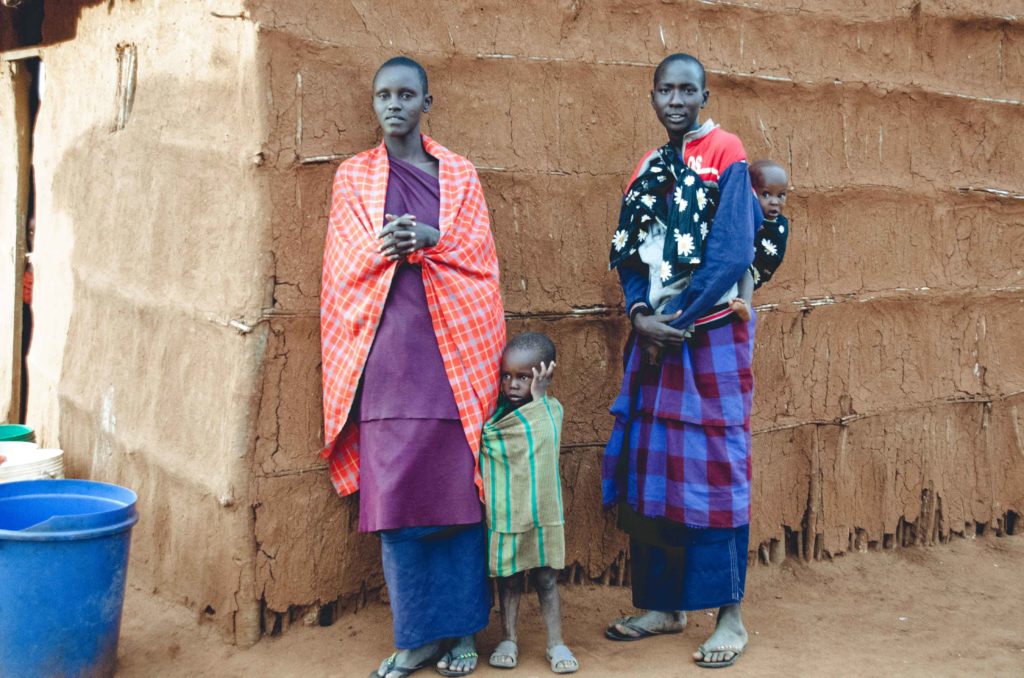
When the world shut down in March 2020 due to the COVID pandemic, GAiN was also forced to pause its Water for Life Initiative drilling operations in Benin, Togo, and Tanzania. Our teams continued to provide hand washing stations and hygiene and sanitation trainings to rural villages in the months that followed. While we had to also pause our church mobilization and multiplication activity, we focused on supporting local pastors with food aid packages to help get them through while churches were closed or attendance was low.
We were thrilled when we were finally able to restart drilling operations by the end of August. Since then, we’ve been able to provide 153 productive wells.
“We bless the Lord and [want to say] a sincere thank you for this [well],” expressed Dieudonné, village chief and farmer of Gbandan Centre, Benin, shared with GAiN in March 2021. “[Before we received our well in February 2017], our suffering was enormous. Today, we have water at all times. The quality of water surpasses the surrounding waters. Hygiene and sanitation training has helped us a lot. Today, COVID-19 has [encouraged] everyone to wash their hands, something that GAiN has taught us long before. The population knows that they must wash their hands regularly.”
Since September, in partnership with local churches, we were also able to plant 39 churches. Following each country’s health and safety guidelines, we stuck to smaller showings of the JESUS film and incorporated more door-to-door evangelism. Despite the restrictions, a total of 21,696 people have attended a JESUS film showing and 3,510 made decisions to follow Jesus. An unexpected upside to the restriction of size gatherings, our team reports, is that people feel more comfortable coming forward to accept Christ when they are in smaller groups.
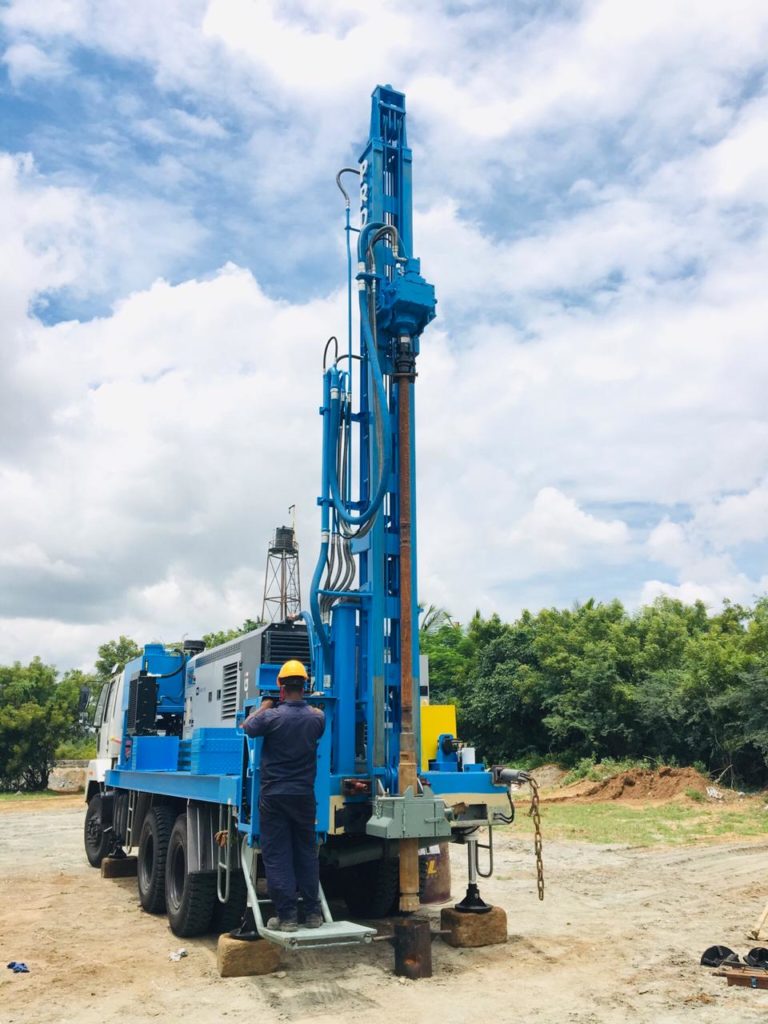
In the past year, two new drilling rigs were donated, one for Tanzania that started operations in September 2020 and one for Benin in April 2021. These rigs are each expected to help provide access to clean water to approximately 70,000 people per year! The rig’s higher drilling capabilities will allow us to drill deeper wells (up to 200 metres) in places where we could not before.
In addition to restarting regular operations, WFLI has also started a few new projects. Recently, we’ve partnered with GAiN Switzerland on a water project in the Maasailand area of Tanzania. This is a new region in the north that we haven’t worked in before.
“This partnership between GAiN Switzerland and GAiN Canada is significant because of the integration of two international GAiN offices (in Switzerland and Canada) who are working together with GAiN Tanzania to reach the Maasai people of northern Tanzania,” Steve J. Thompson, Director for WFLI, explains. “Surface water is very scarce in the Maasailand region, and we’ve needed to go deep into the ground (up to 180 m) to find clean water. Without the partnership of GAiN Switzerland, GAiN Canada, GAiN Tanzania, and Swiss donors, this work would not be possible.”
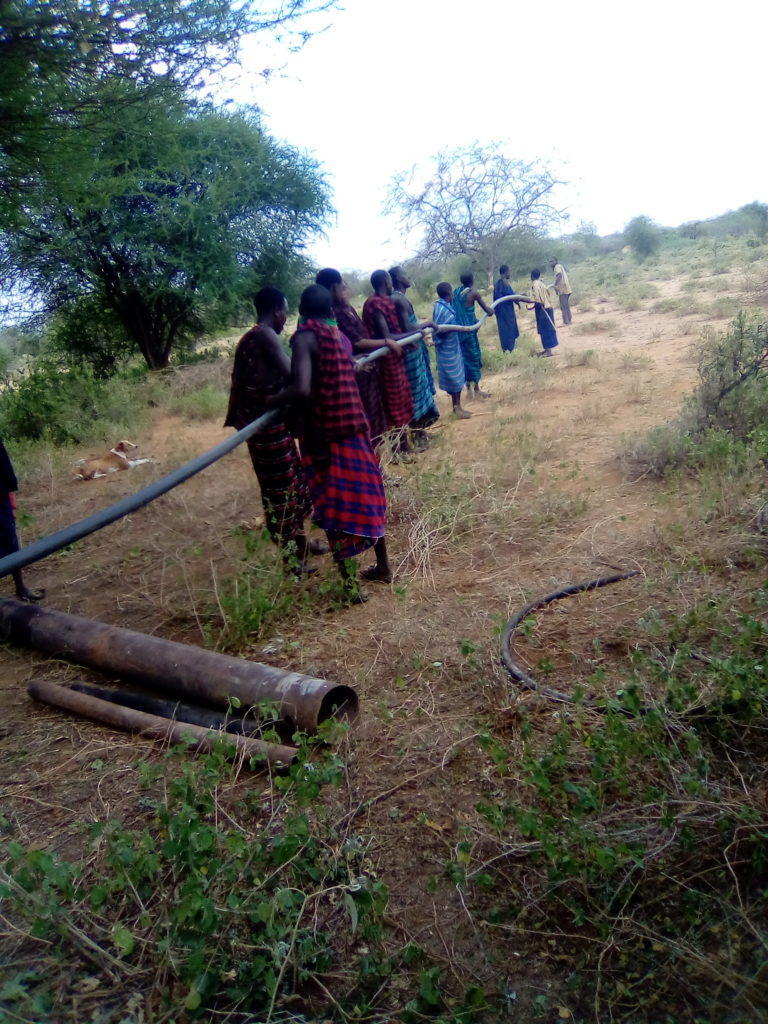
The water wells in this region are deeper than the water wells we drill in the south of Tanzania, requiring submersible pumps and water towers in these villages.
“[This] requires the use of a generator,” Stephanie McDonald, Project Manager for WFLI, explains. “When the generator is switched on, the submersible pump will pump water back into the 3000L water tank. Villagers will be able to get water from the tank by the tap.”
We’ve also started the AFA project in Benin and Tanzania. AFA stands for Anii, Fulfulde and Assa, the three unreached people groups (UPGs)* – two from Benin and one from Tanzania – that we’re focused on reaching over the next three years as part of our church mobilization and multiplication strategy. Project activities have started in March, with our teams surveying villages in the surrounding areas to learn more about the UPGs, in hopes of getting a better understanding of the spiritual climate.
“These questions are important [to ask], first, because it is not always easy to find the people we are trying to reach,” Eric Rose, Mission Integration Director, says. “Sometimes, civil unrest or sickness or famine can cause groups of people to pack up and relocate elsewhere, so making sure we are in the right place is critical.”
Asking the right questions will help our teams learn key information, such as where the majority of the UPG is located, why it is still unreached, the religious or worldviews of the people group, the primary language, and if there are any existing churches among these groups.
Thompson adds, “Through integral mission, we intend to continue to strengthen existing churches, plant new churches, and equip pastors, lay leaders and other members of the community in the methods of discipleship and evangelism. Additional support will be provided to pastors through focused teaching on servant leadership, and the provision of funds to attend seminary to strengthen their Biblical roots. This project demonstrates the integrated body of Christ through our financial partners, local churches and national GAiN staff.”
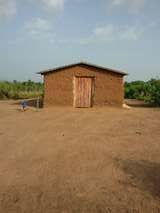
Another exciting project is one in partnership with Pioneers Benin, affiliated with Pioneers International (an international Christian missions organization focused on church planting among UPGs). This project is locally funded.
Thompson shares: “Seventy-five per cent of funds required for this project were raised from local donors in Benin who are partnering with Canadian donors to ensure its success. This shows how the strength of believers across continents and oceans can work together to further God’s Kingdom.”
This project is significant, Thompson says, because it will reach the predominantly Muslim areas of the country. “Many individual attempts to reach this area with the gospel have been repelled, but through our partnership with Pioneers, we are praying that many would respond to the gospel message.”
As the year rolls on, we continue to work toward building a world where human flourishing is restored and water poverty is eradicated through the power of the gospel. With the addition of these new projects, we are excited to expand our reach so that more people can experience whole-life transformation through safe water and the Living Water.
*Unreached people groups, also known as least reached people groups, are “an identifiable group of people distinguished by a distinct culture, language, or social class who lack a community of Christians able to evangelize the rest of the people group without outside help,” according to Global Frontier Missions.
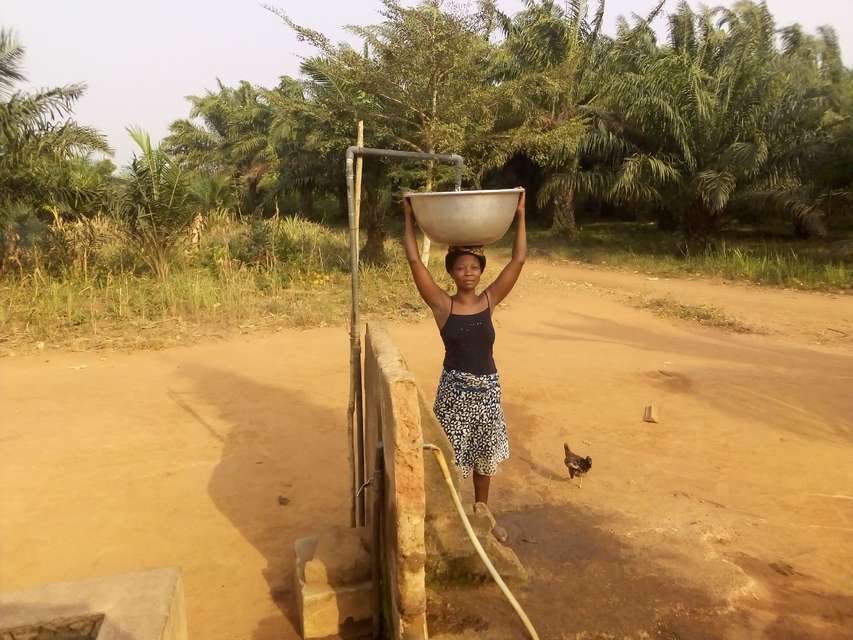
In the village of Adjalagan in South Benin, people were deeply rooted in traditional voodoo. Villagers worked hard and relied on farming activities to sell produce at the local market to make a living, but without water access this was even more difficult. There were no schools, nor opportunities for learning. Hygiene in the village and in homes was poor due to the lack of water. The village was dirty and people were living in darkness and despair.
This all changed when Global Aid Network (GAiN) first got involved in Adjalagan almost 10 years ago, providing a deep-capped water well for 1,400 villagers and supporting a local church to introduce people to the Living Water of Jesus. With access to clean water, people were no longer sick and the cleanliness of the community greatly improved. People were finally able to wash their clothes, and sweep and dispose of garbage properly. Access to clean water gave them dignity and improved the mindset of those who now want to take care of themselves, their families and their homes.
Recently, in January, our team visited the community to monitor the impact of the program, connect with the local church, and assess the sustainability of the water well. The pump was functioning very well and the water committee has been maintaining it and arranging for repairs when necessary. The community continues to maintain cleanliness and good hygiene practices taught in the hygiene and sanitation training.
We were excited to see that the community development trainings have proven effective in maintaining the sustainability of the well. With access to clean water helping to bring peace and lessen quarrels in households and among neighbours, the gender sensitivity trainings also helped contribute to understanding between men and women. A total of forty-six men and women attended the training, improving the overall well-being and quality of life for everyone in the village.
Benedict, a former leader in cult practices in Adjalagan, shared:
“GAiN contributed to other changes in our village. It is because of one of their trainings that I am no longer violent with my wife and it brought peace to our household. So many things have changed in our behaviours. This is important because before we did not understand but now we do, especially as we practice these things. In another GAiN training, we realized that we should go to the clinic for the birth of children. We learned that going to school is important and we began by sending our children to school. Many things have changed in our lives. It is as if we were in darkness and GAiN brought us to the light.”
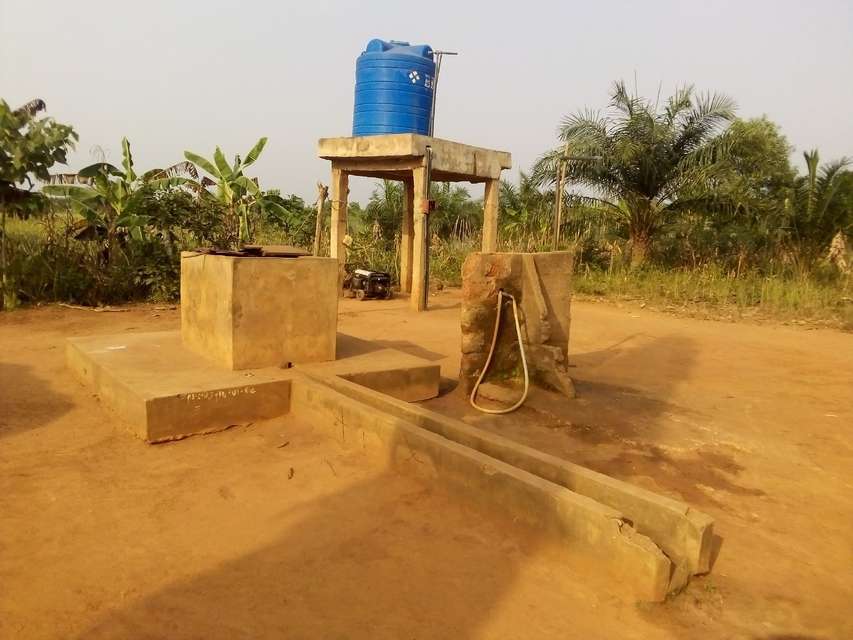
The local church is very engaged in the community and carries the light of Christ to these people. Previously, the villagers were very resistant to the church and tried to force the local pastor to leave. But because of the faithfulness of this pastor and the partnership with GAiN to bring clean water and community development, there is now a thriving church in this community.
Eight years ago, in partnership with the local church, the JESUS film was shown to a total of 405 people in the village, resulting in 114 people making the decision to follow Jesus, and 23 people joining a follow-up group to learn the basics of their new faith. As of January 2021, the local church is attended by over 120 people. People in Adjalagan are no longer interested in practicing Voodoo. Lives have been transformed and people have hope!
For villagers like Benedict, we strive to see a world where a person’s dignity and rights are realized through access to basic water services, while churches actively participate in reversing the cycle of spiritual, physical, social and economic poverty. The COVID-19 pandemic has also demonstrated the critical importance of sanitation, hygiene and adequate access to clean water for preventing and containing diseases.
We are raising $85,000 by June 30 to provide approximately 10,000 villagers in 10 communities with safe water and the Living Water. Would you join us as we help other Benedicts of the world to live out their God-given potential for their lives (John 10:10)? Your donation of $85, $170 or $425 improves, not only family life, but overall quality of life for women, men and children.
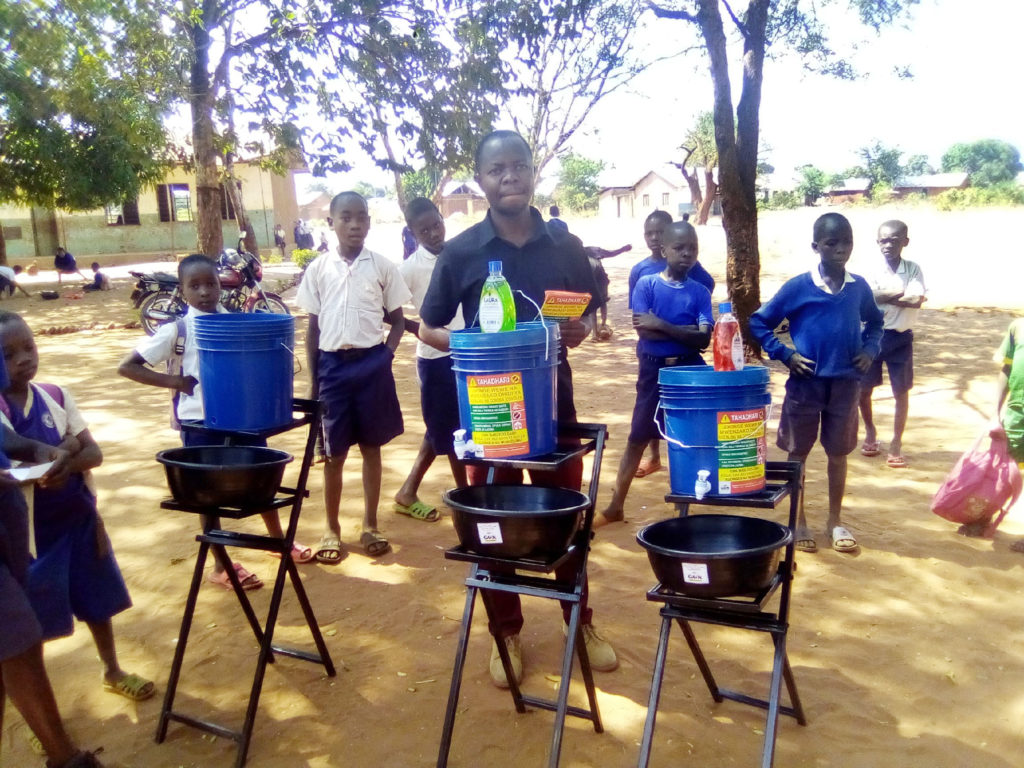
For over a decade, Global Aid Network (GAiN) has been involved in providing deep-capped water wells to rural villages in countries such as Benin, Togo and Tanzania. Along with access to clean water, GAiN focuses on holistic sustainable community development as part of our integrated WASH (Water, Sanitation and Hygiene) program, which includes hygiene and sanitation training.
The importance of hygiene and sanitation is especially highlighted in times like a global pandemic. When COVID-19 spread to Benin, Togo and Tanzania, Global Aid Network (GAiN) pivoted our community strategy, building on our hygiene and sanitation trainings, to raise awareness about COVID-19 prevention through a community response, church response and clinic response.
Each response included sharing health promotion messages such as washing hands with soap and water often, or using hand sanitizer, keeping two metres apart, wearing PPE (personal protective equipment) such as gloves and masks, and staying home when sick. Hand hygiene materials (such as soap and sanitizer) were also distributed to church pastors, clinics and households.
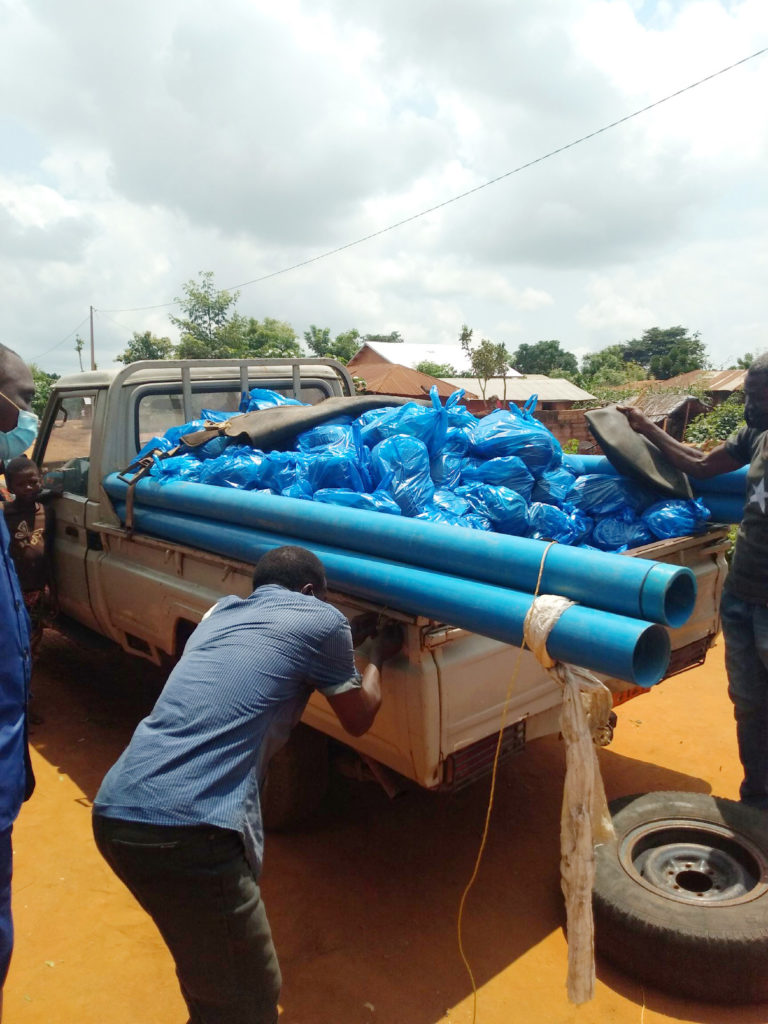
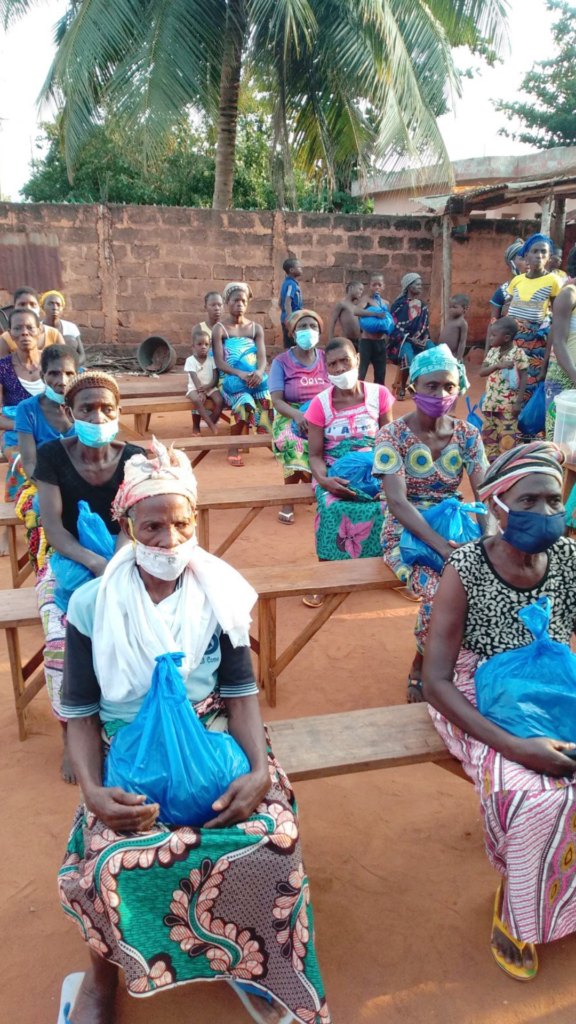
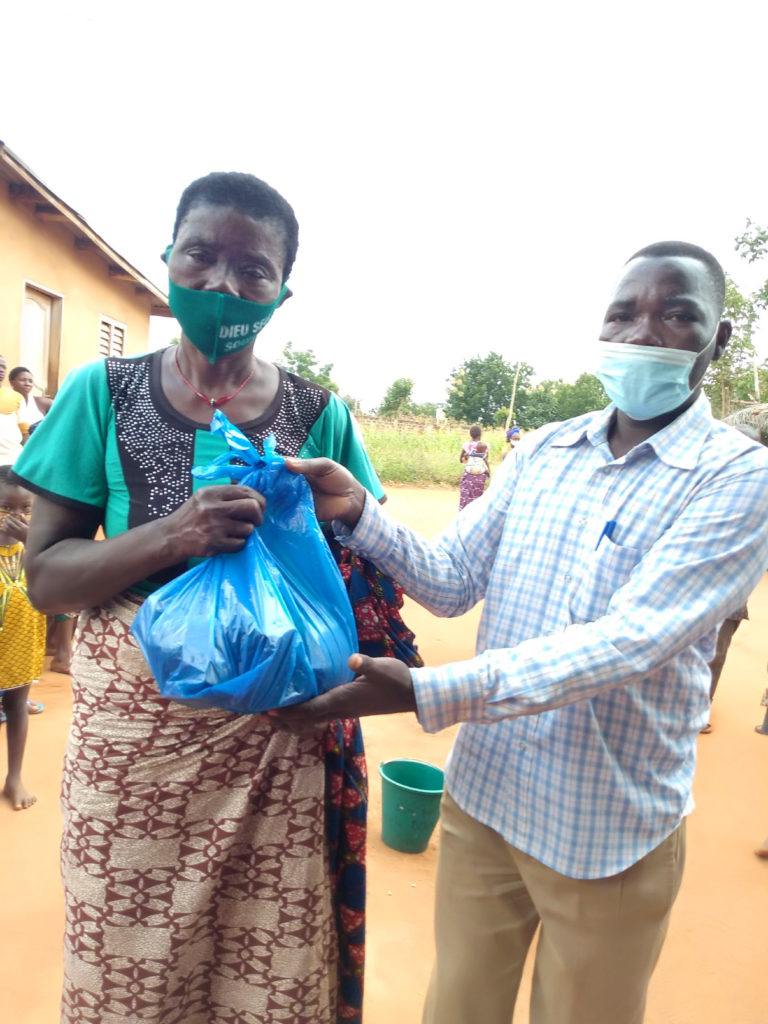
The idea was to empower and equip pastors and clinic workers to not just feel safe, but also spread the message on how to prevent the spread of the virus and encourage members of the community to demonstrate love during the pandemic. GAiN was able to connect with pastors through calling and texting, to offer support coaching.
The community response has been important, especially because many of the villages our teams reached are remote and hard to access. It is essential for villagers to understand the necessary precautions in order to keep their communities safe and healthy. Sharing health messages and distributing hygiene materials was also a good way to share the love of God to people in the village, by showing that their physical health is valued.
When sharing these health messages, teams in the field met with members of the community in small groups. Not only did they share knowledge, but they also modelled proper safety protocols.
In Benin, teams delivered soap to households and local pastors were taught how to encourage villagers to create their own handwashing stations with buckets and soap. Local pastors were equipped with megaphones to reach people with important health messages without needing to host a large group of people together.
“The megaphone will help me share the word of God and continue the promotion of personal protection equipment in the village. With this, my ministry will grow here,” expressed Pastor Dogble Gossou Paul, who leads a local church in Dossohoue, Benin.
He continued, “[The health] promotion is wonderful and I’m pleased, especially the hygiene part of it would [encourage] people here to practice hygiene more. We are in a village here where people don’t understand much about the current COVID-19 disease. So, this will make them knowledgeable and empower them as to [how to] avoid the disease. I’m sure this promotion is a great teaching for the whole village and for the church in particular.”
Pastor Dogble also believes in leading by example for his congregation. “I’ll strictly use everything I’ve learned here in my household, and then I’ll remind it to the church because ‘charity begins at home.’”
Our teams also reached five schools in Tanzania, providing handwashing stations, as well as health messaging. The need for handwashing stations in Tanzania has been even more significant since classes have resumed. Thanks to the handwashing stations, students and teachers can easily wash their hands, and continue to keep safe and lower the risk of contamination.
We are now restarting our drilling operations and excited to continue to bring clean water to communities in need. The pandemic is not over, but we are determined to take the lessons we learned from our COVID response to continue to promote proper hygiene and sanitation practices. There is no doubt that WASH will continue to be a priority when it comes to COVID prevention and as we carry on with the work we’ve started.
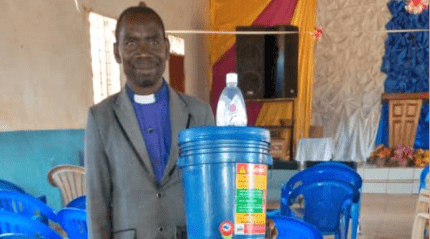
Over the last six months, food insecurity has become an even greater concern in developing countries like Benin, Togo and Tanzania due to the global pandemic. The pastors that we partner with have not been spared the economic consequences, with many of them struggling to put food on the table. Thanks to everyone who supported our COVID response, we were able to provide food to approximately 400 pastors in need, with the last bags of food being provided at the beginning of August.
“This food is going to [feed] a lot of people in my household,” shared Pastor Vivwadinou Edmond from Glo Djitin, Benin. “I have four children, but we have other relatives living with us. We were suffering as a result of the COVID-19 outbreak, but today we are incredibly happy because we have been given some food. We have no other support. God knows that so many pastors are suffering as a result of the COVID-19 crisis. We were totally desperate. We did not know what to do or how the future would look like. We used to get some money at the end of the month; but during this crisis, it is like no months come to their end. Nobody asked how we are managing to survive but God brought us relief.”
Another pastor in Benin, Pastor Adrien Hountekon from Tori Gbohoue, also received help and expressed his gratitude.
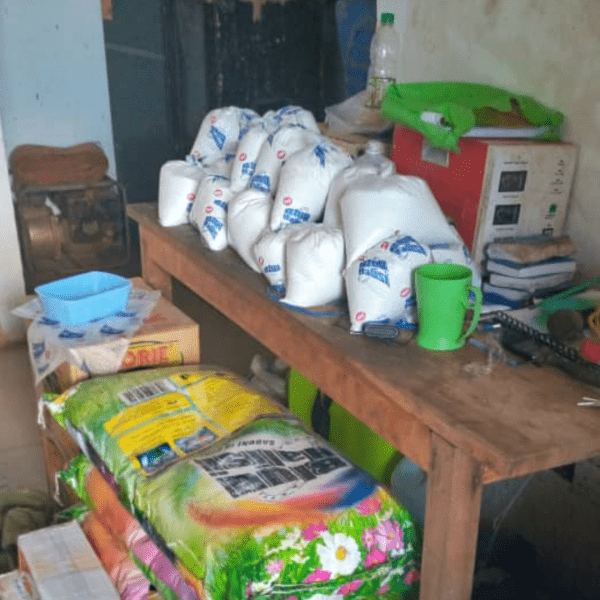
“As a result of COVID-19, churches closed and we pastors are experiencing exceedingly difficult times. Our church members were struggling financially even before the crisis, but as a result of COVID things have become worse. We no more meet for worship services. We attempt to meet in homes but it is difficult. We somehow are trying our best to visit believers in their homes to pray for them or to bring encouragement to them. We all know that it is from what the believers give that pastors are paid and now that we no more hold church services we are in trouble financially. Pastors today lack means to even go and visit church members. Today, I am greatly encouraged as a result of what I have seen and [the food I] received. It has given me energy to continue to work. I have understood that not everybody has forgotten about pastors.”
Thank you for helping reveal hope and restore life to pastors in Benin, Togo and Tanzania. The impact of your support truly goes beyond just providing food. The emotional encouragement of knowing that they are supported and cared for has made a tremendous impact in the lives of pastors who are still working hard in their communities to share the unconditional love of Jesus, and support and encourage their church members during this pandemic.

